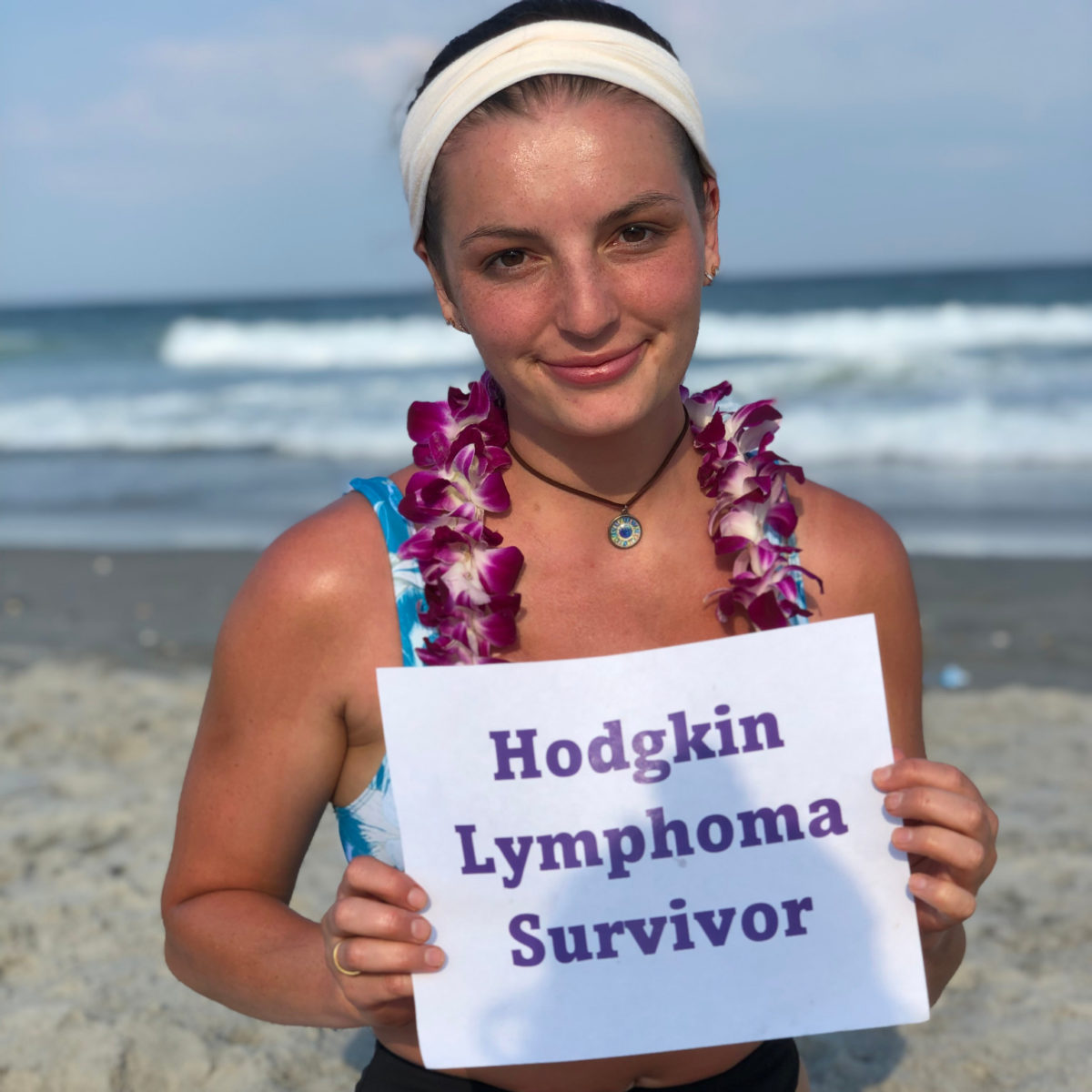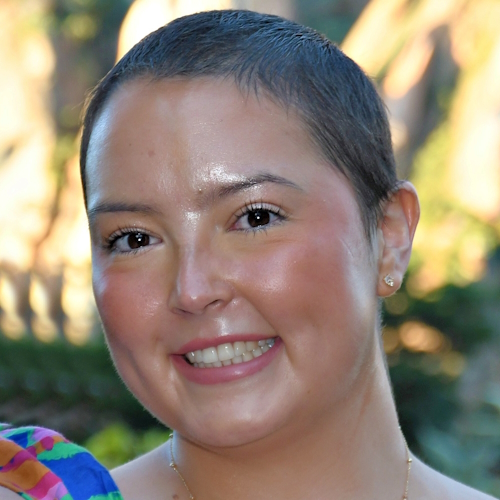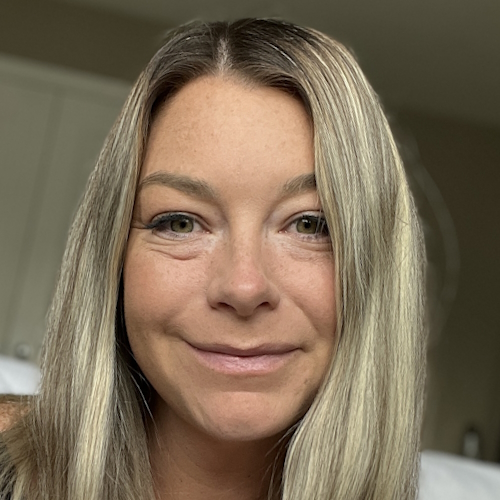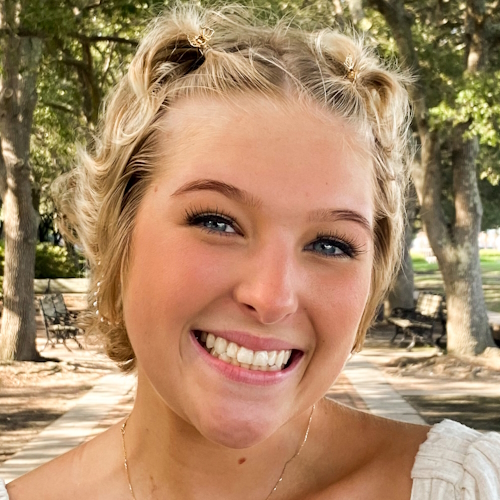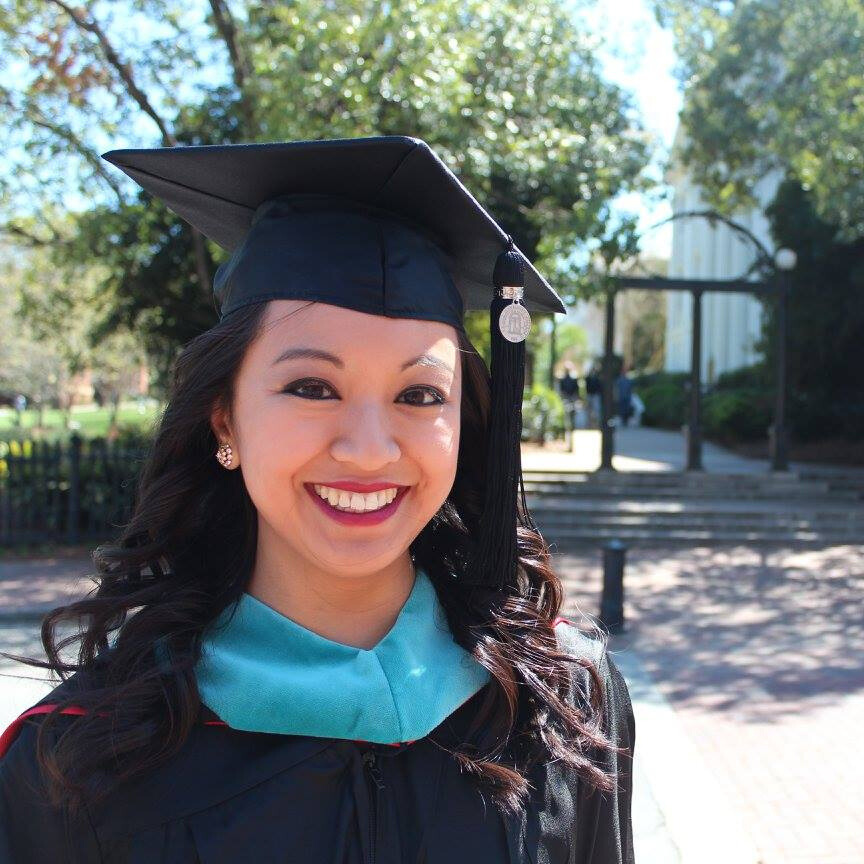Danielle’s Stage 1 Classical Hodgkin’s Lymphoma Story
Being a health-focused family, Danielle and her family were shocked to discover Danielle’s mother had a rare blood cancer known as myelofibrosis. To get a stem cell transplant, her mother needed a donor, and tests showed Danielle was a good match. Danielle needed an x-ray to confirm she was healthy enough to be a donor. The x-ray revealed a large tumor in her chest, catalyzing her own journey with cancer. She was diagnosed with stage 1 classical Hodgkin’s lymphoma.
After landing her dream and preparing to step into a new career, at 25, Danielle wasn’t ready to be held back from beginning her life. Still, she found herself adjusting plans to account for various cancer treatments, resulting side effects, and a cancer recurrence.
A month in remission, Danielle shares her cancer story with us including her experience with chemo, fertility preservation, and a bone marrow transplant, her plans of turning her journals into a book, her outlook on being diagnosed with Hodgkin’s lymphoma twice, and her advice to those on their own cancer journeys.
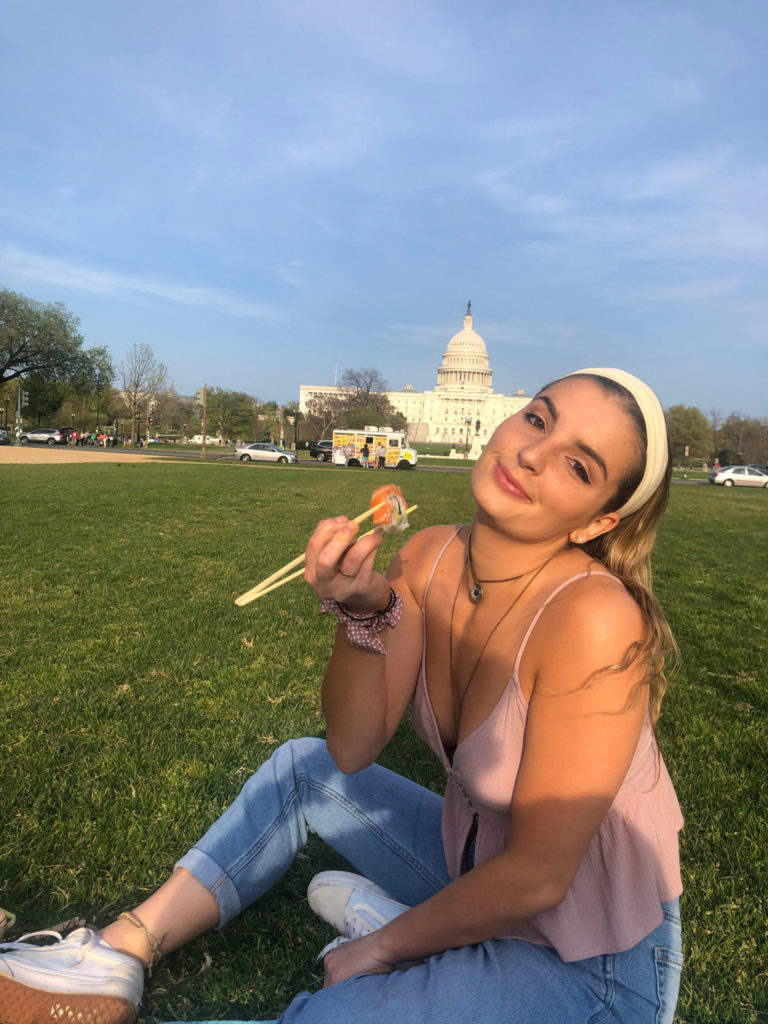
- Name: Danielle D.
- Diagnosis (DX):
- Hodgkin’s Lymphoma
- Classical
- Hodgkin’s Lymphoma
- Staging:
- Stage 1
- Age at DX: 25
- Treatment:
- Chemo
- ABVD
- Immunotherapy
- Nivolumab
- Brentuximab
- Bone Marrow Transplant
- Chemo
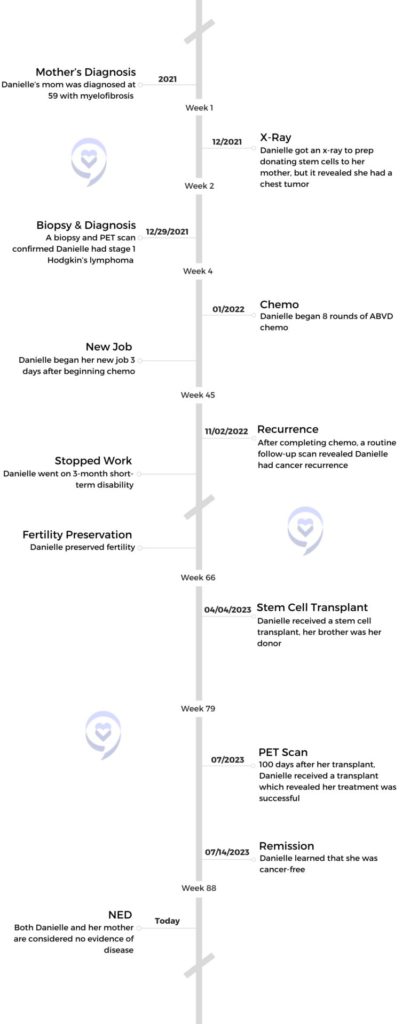
I feel like even when you’re struggling, you can reach for the stars and find meaning in your suffering, never give up hope, and always choose love over fear.
Danielle D.
This interview has been edited for clarity. This is not medical advice. Please consult with your healthcare provider for treatment decisions.
- Diagnosis
- Chemotherapy
- Were you working at the time of your diagnosis?
- Beginning cancer treatment
- Did you opt for fertility preservation?
- Did you have side effects from chemotherapy?
- How did your cancer react to chemotherapy?
- Did you lose your hair to chemo?
- Did you have a reaction to Bleomycin?
- Reoccurrence
- What were the results of your post-chemo PET scan?
- Processing cancer reoccurrence
- Switching medical care teams
- Choosing between a stem cell transplant and a bone marrow transplant
- Bone Marrow Transplant
- Describe what a bone marrow transplant involves
- Preserving fertility
- Did you go through immunotherapy?
- What was your experience getting a bone marrow transplant like?
- What was recovering from your bone marrow transplant like?
- What effect did the bone marrow transplant have on your cancer?
- Reflections
- How does it feel to be in remission?
- What would you say to someone on their cancer journey?
Diagnosis
Tell us about yourself
I’m Danielle Draper. I’m 26 years old. I was born and raised in Annapolis, Maryland but I’ve been living and working in Washington, D.C. for the last four-ish years. I really like politics and government affairs.
For fun, I love hanging out with a really large friend group and normal mid-twenties activities. Going out to concerts. I’m really adventurous, I love to travel, and I love yoga. I really want to be a yoga teacher. I grew up doing dance my whole life. I’m really into health, fitness, exercising, and eating healthy. My family and I have always been really into integrative health.
Where did your cancer journey begin?
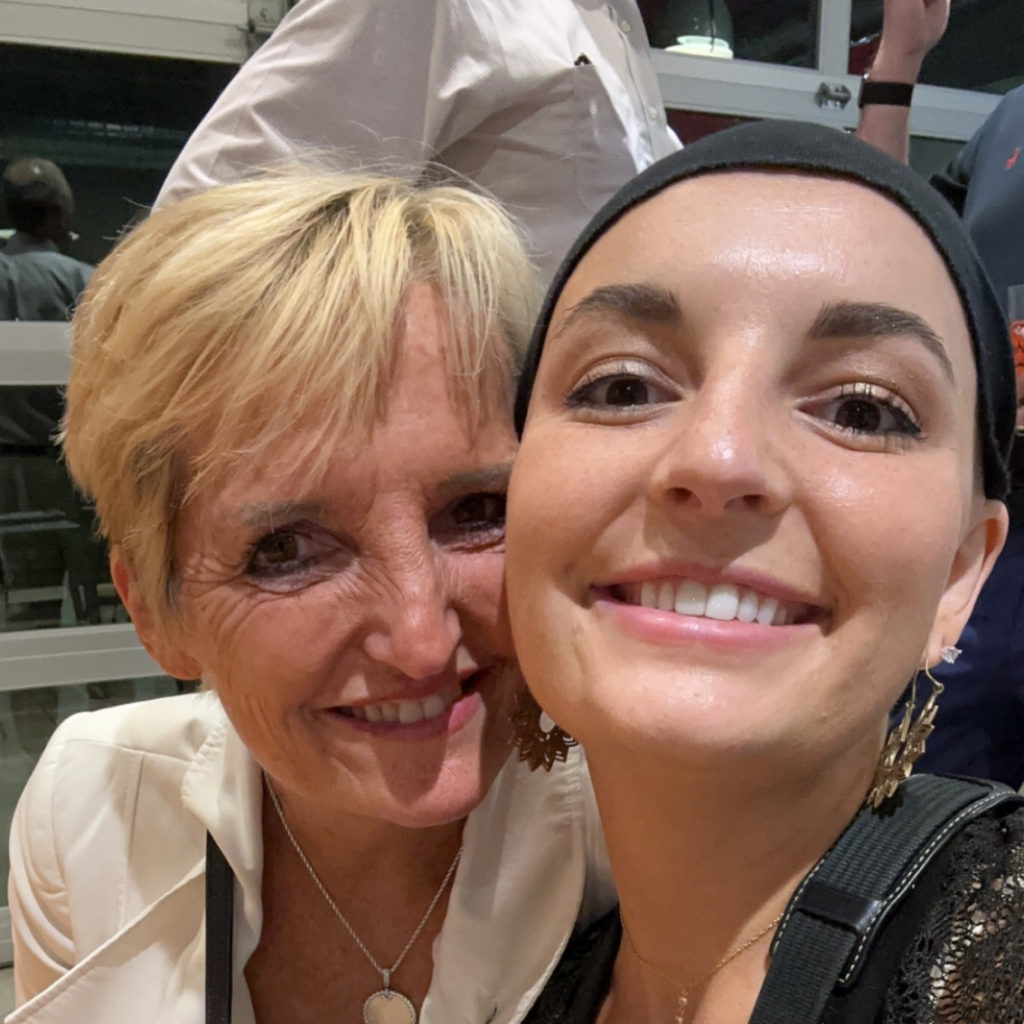
She had a rare blood cancer called myelofibrosis, which is a malignant bone marrow disorder. She was diagnosed with cancer.
My story is extremely unique in that my mom started feeling really itchy and would bruise easily, but she was just going to her normal physical doctor’s appointment and she got her blood drawn as usual. She’s a super healthy person, and all of a sudden, her platelet count was extremely low.
She bounced around a few doctors, then finally, one doctor was like, “I think you should get a bone marrow biopsy.” That confirmed that she had a rare blood cancer called myelofibrosis, which is a malignant bone marrow disorder. She was diagnosed with cancer.
The “C” word was never in our vocabulary. My family is so healthy, so that was such a shock for my family. Especially when the doctor told my mom, “You’re going to have to get a stem cell transplant.” We’ve never heard that word, so we were like, all right, what is the stem cell transplant? It’s a very intense procedure where they would replace her unhealthy blood cells with healthy cells using a donor. Most hospitals try to get a family member to be their donor because they’re most likely a good match. They requested that I get tested because I’m her daughter. I’m also young and healthy.
Preparing to donate stem cells for a transplant
We got tested and I found out I was a pretty good match. We started the approval process right away. There were a lot of questionnaires, I was going to get a lot of blood tests and everything was getting approved and was looking really good. At this point, we had told all our family and friends this is what’s happening. We gathered such a huge support system. Everyone was encouraging me and my mom that our family was going to get through this.
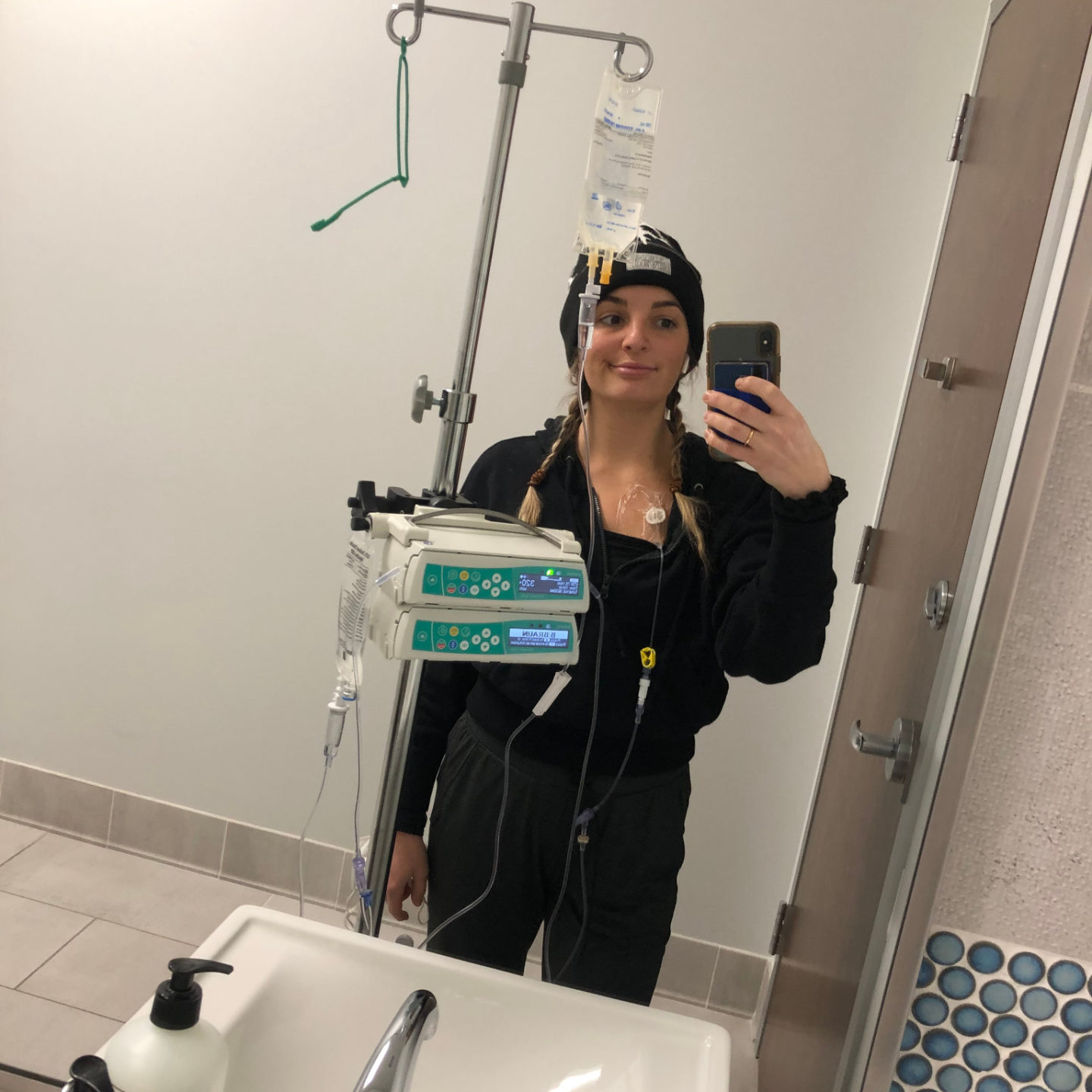
Now we’re about 3 weeks away from my mom’s transplant, everything’s going in order, and the date had been decided. A few weeks before, they had to do final approval tests which included a physical exam by the donor because they wanted to make sure that the donor was perfectly healthy.
I went to the hospital and I did an EKG, a blood test, a physical exam, and a chest x-ray. I definitely wasn’t worried. I rarely went to the doctor for anything at that point in my life. I didn’t even have a primary care doctor, just my pediatrician from my childhood. I went in with a very positive attitude, I felt fine that day, everything was looking good and I was just bouncing around.
A chest x-ray led to a surprise discovery
The doctor walked in and she asked me to sit down and she was like, “We found a tumor in your chest near your heart.”
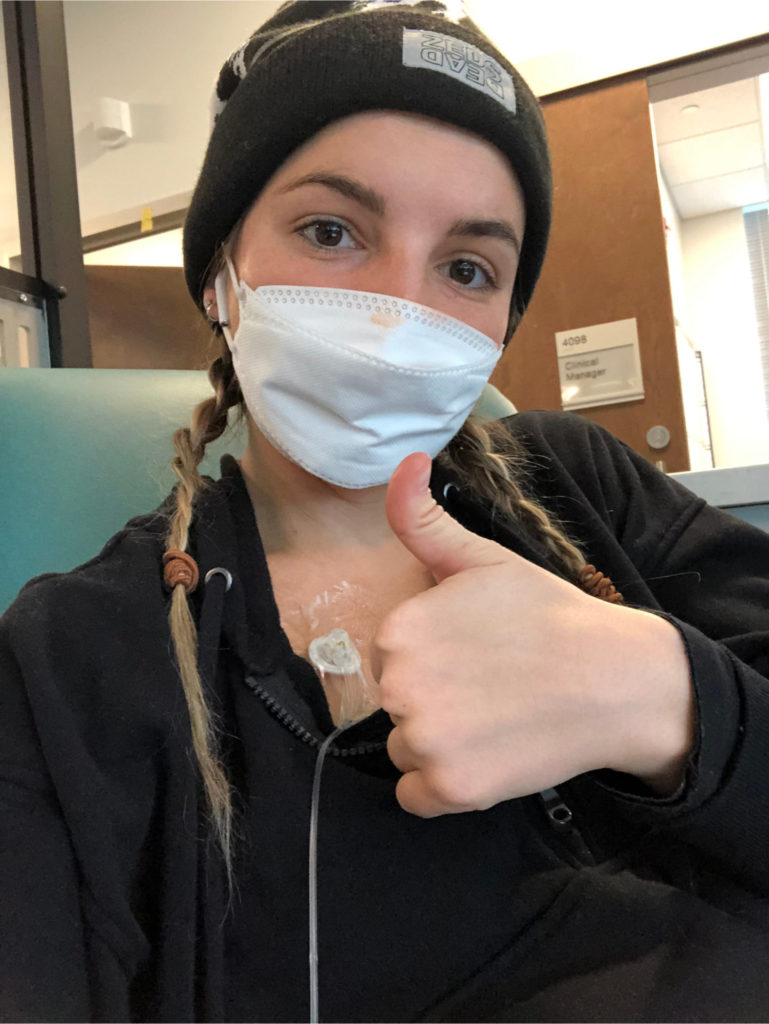
I got the chest x-ray and the nurse said, “Oh, don’t worry, we’ve never had a donor have a problem.” Those were famous last words. I was waiting in the hospital room for over an hour, like, wow, these results for the chest x-ray are taking a really long time. I still didn’t think anything of it. I just thought hospitals were slow.
Then the doctor walked in and she asked me to sit down and she was like, “We found a tumor in your chest near your heart.” They were just as surprised as I was. Everyone was like, wait, what? She said, “Have you been losing weight?” I said, “Actually, I have been losing weight a little bit.” But I had started really exercising that fall, I’d been eating healthy. I thought it was just me making better, healthy choices in my life. She said, “If you’re losing weight, that’s obviously not a very good sign.”
Did you have any symptoms?
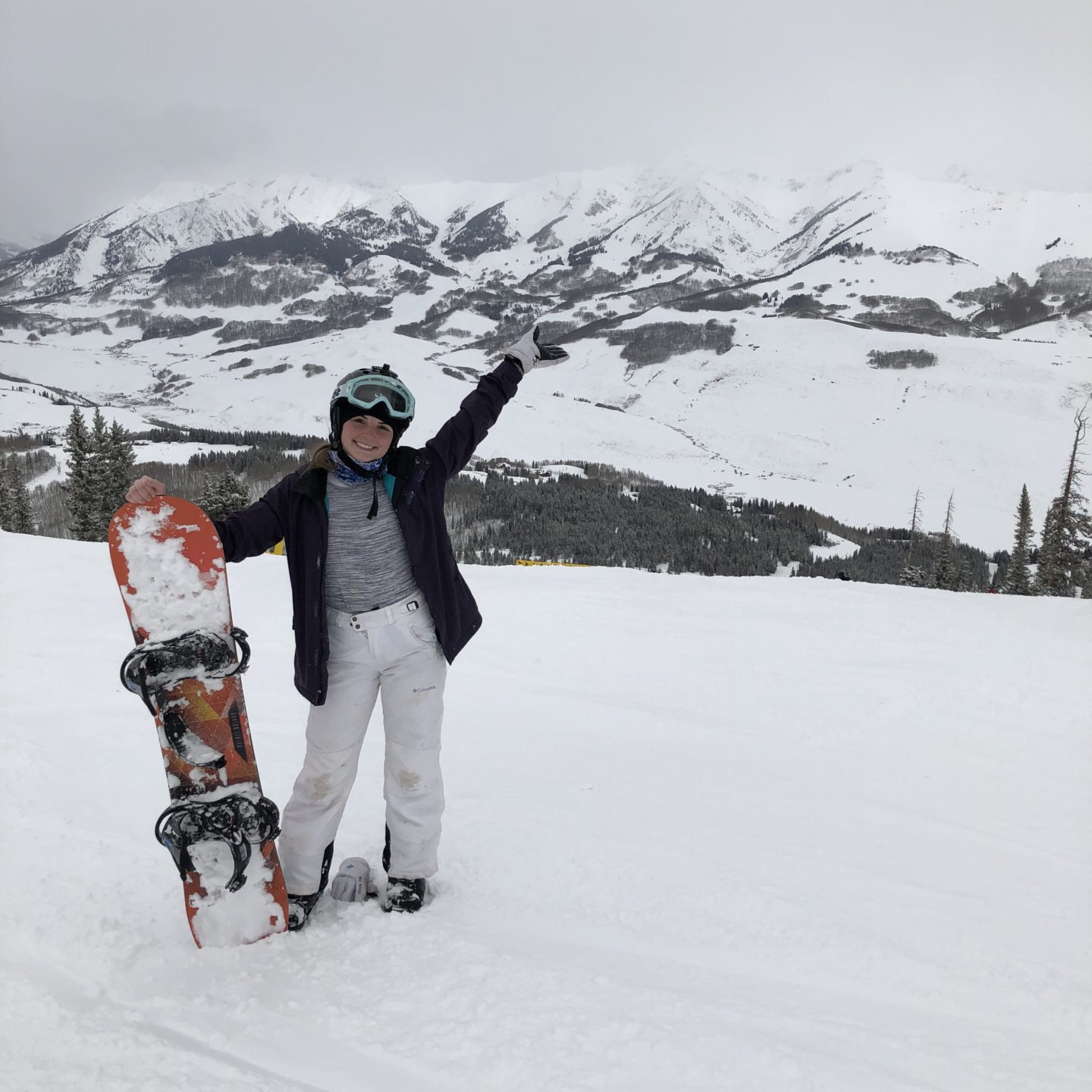
This is definitely a unique situation where I felt fine, but there was a mass the size of my fist near my heart. I didn’t know anything about oncology or anything. My mom went to her doctor and was like, “This is what’s happening.” Then my doctor sent me to one of the best oncologists in Annapolis. I feel really blessed. It was almost like a recommendation by word of mouth.
Getting a biopsy and diagnosis
He said it was classical Hodgkin’s lymphoma.
We went to the oncologist and he took some blood labs and already things were not looking very good because Hodgkin’s lymphoma has certain markers and tests you can do. Those weren’t very good. He asked to get a biopsy right after Christmas.
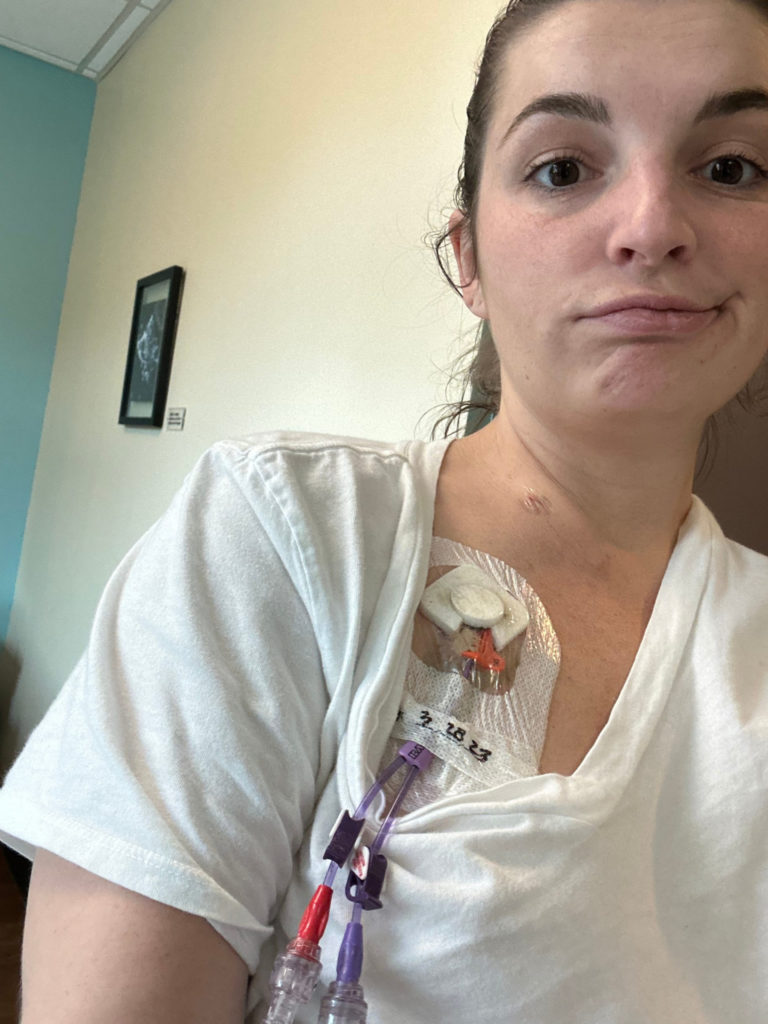
I tried to have a normal Christmas. December 27th at 5:00 in the morning, I had the biopsy and I think my oncologist pulled a few strings to rush the results, but we got the results the next day. He said it was classical Hodgkin’s lymphoma, one of the most common cancers in people in their 20s. That terrible day of that chest x-ray was December 18th and then I was diagnosed December 28th, so in about 10 days I went from living a completely normal life to having cancer.
How did you react to your cancer diagnosis?
It was so shocking. I don’t even know how to describe it. It was definitely the worst moment of my life. I literally thought I was going to die the next day. I was like, I have a month to live.
When I got that chest x-ray, my mom was traveling. She’s a flight attendant, and I called her because she had known that I was getting my approval test, so she was anxious to hear how it all went. At that point, everything was being approved. I called her and she was like, “Hi, honey, I’m about to take off.” She was traveling to Rome and she said, “Is everything all right? How did the test go?” I was like, I can’t tell her. I can’t ruin her trip, so I just lied and said, “Everything’s fine. I’ll see you when you get home.”
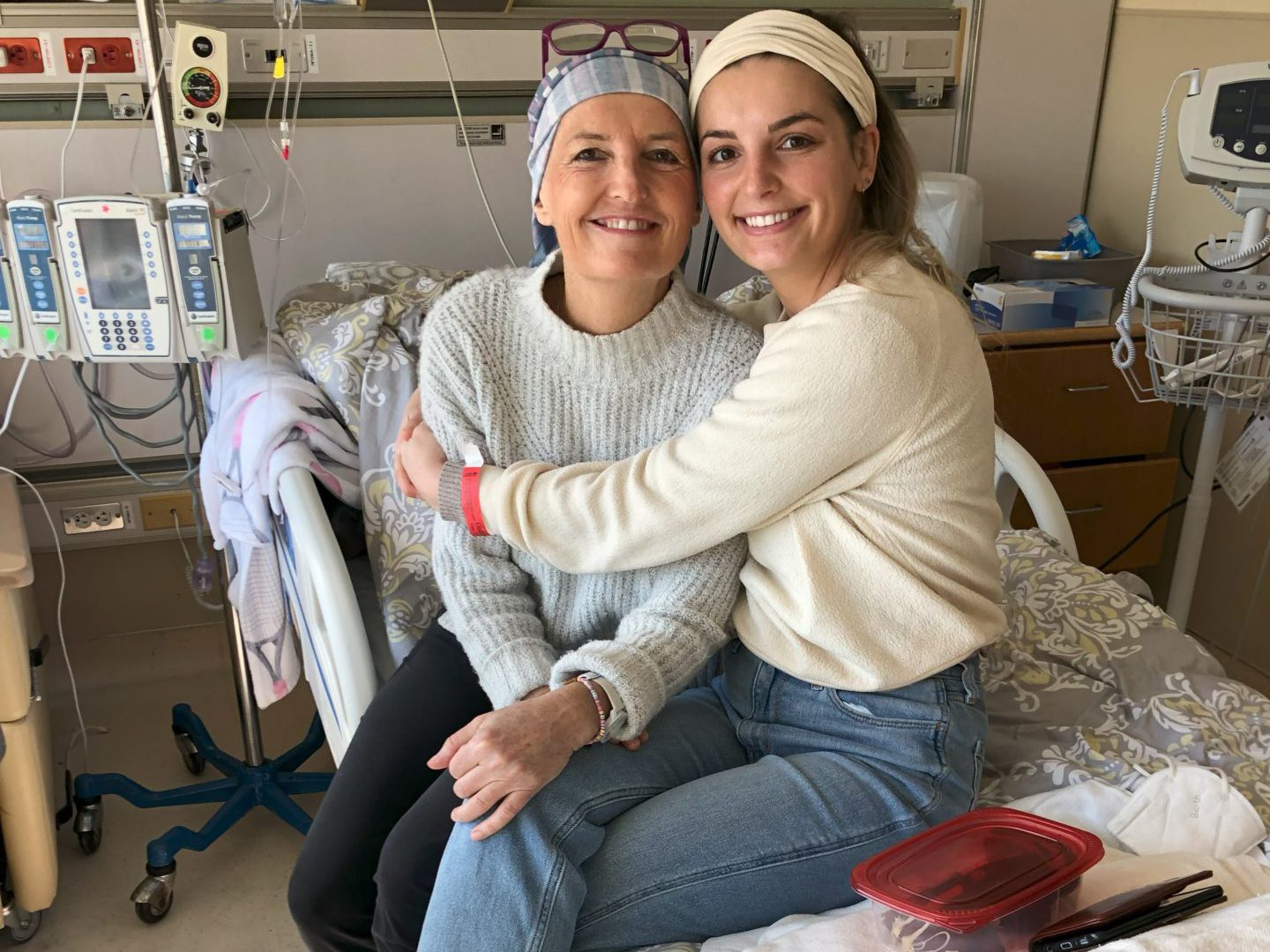
Then I had to sit her down and I was like, “I can’t be your donor anymore.” She was like, “What? Why?” I said, “There’s a tumor in my chest.” It was probably the worst look on her face I’ve ever seen. I’ll definitely never forget that moment. It all happened so fast. It was so unbelievable.
»MORE: How To Tell Your Family and Friends You Have Cancer
Chemotherapy
Were you working at the time of your diagnosis?
A week before that, I had just gotten my dream job. I had been applying for 5 months, working the full-time grind of sending out resumes and cover letters and interviewing, and on December 10th, landed my dream job. I’m over the moon at that point. I had just moved into a brand new apartment with my boyfriend. I thought I was entering a new phase of my life.
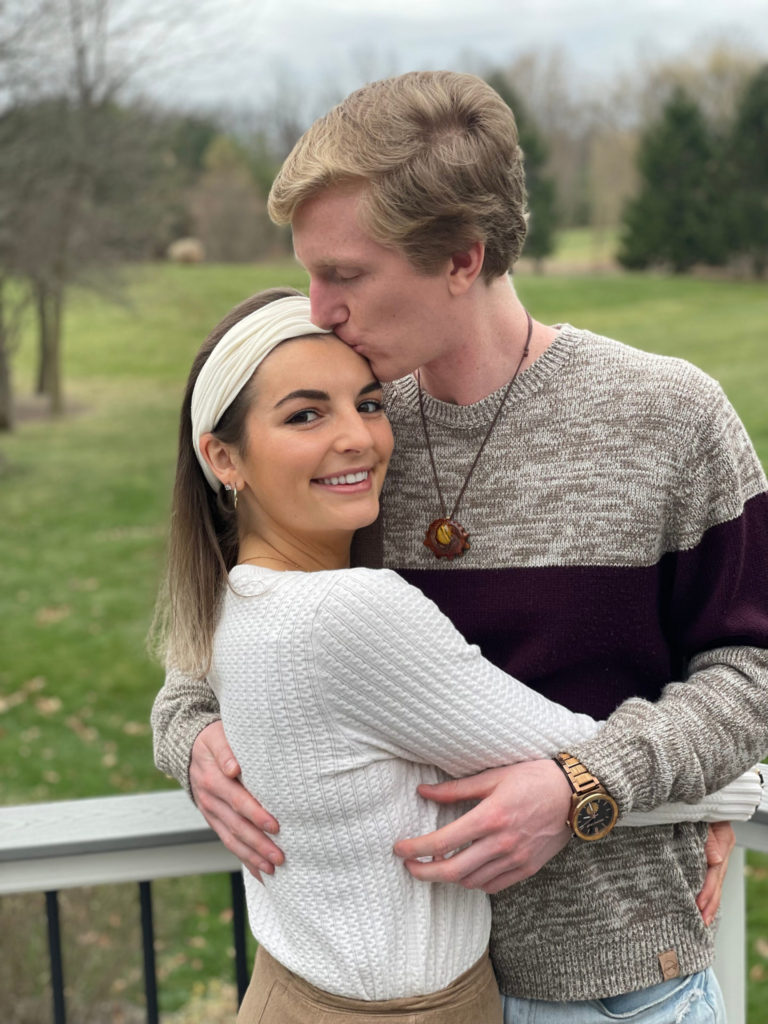
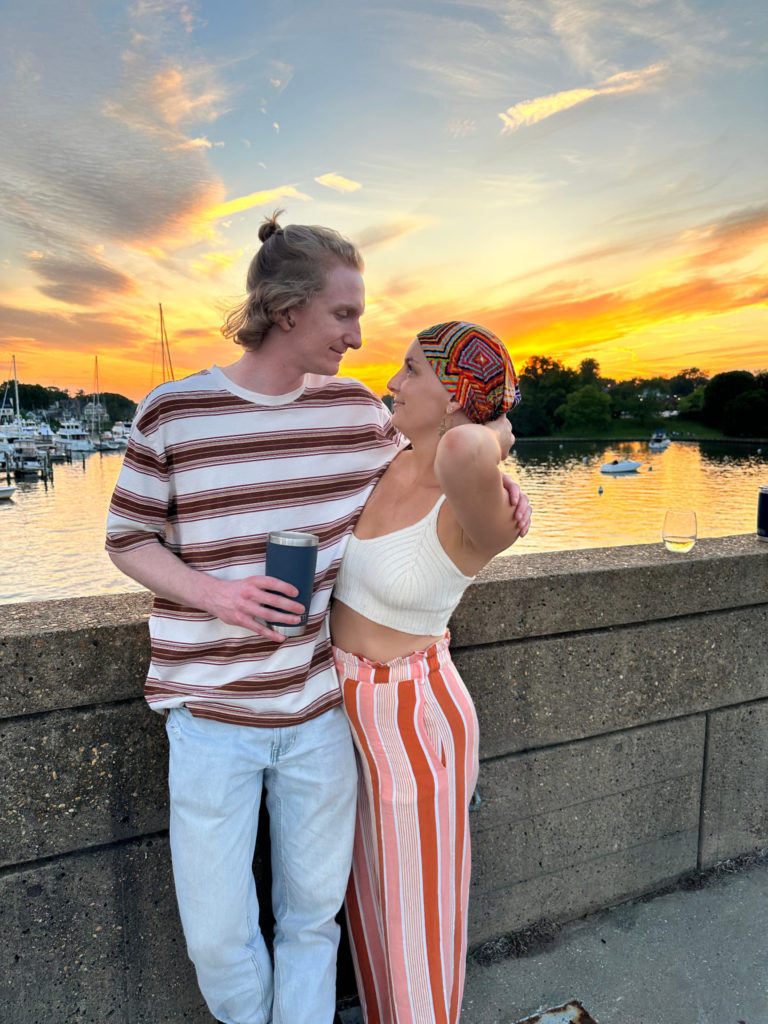
That was my main concern, which is weird. It should have been will I die or not, but I was like, I want to start this job…When you’re 25 and just starting to enter the workforce, you don’t want to be held back.
Then when I got diagnosed, I think my first concern, which sounds silly, was I better not lose this new job because it’s something I’ve worked so hard on. That was my first question to my oncologist, can I keep working? Can I start this job? He was like, “If you think you can do it, I encourage you to do it.” That was my main concern, which is weird. It should have been will I die or not, but I was like, I want to start this job.
»MORE: Working During Cancer Treatment
When you’re 25 and just starting to enter the workforce, you don’t want to be held back. But we were all really surprised. We barely told anyone because everyone was so worried about my mom. It was just so surreal that we didn’t want to tell anyone about what was going on with me because it was too much to handle.
Beginning cancer treatment
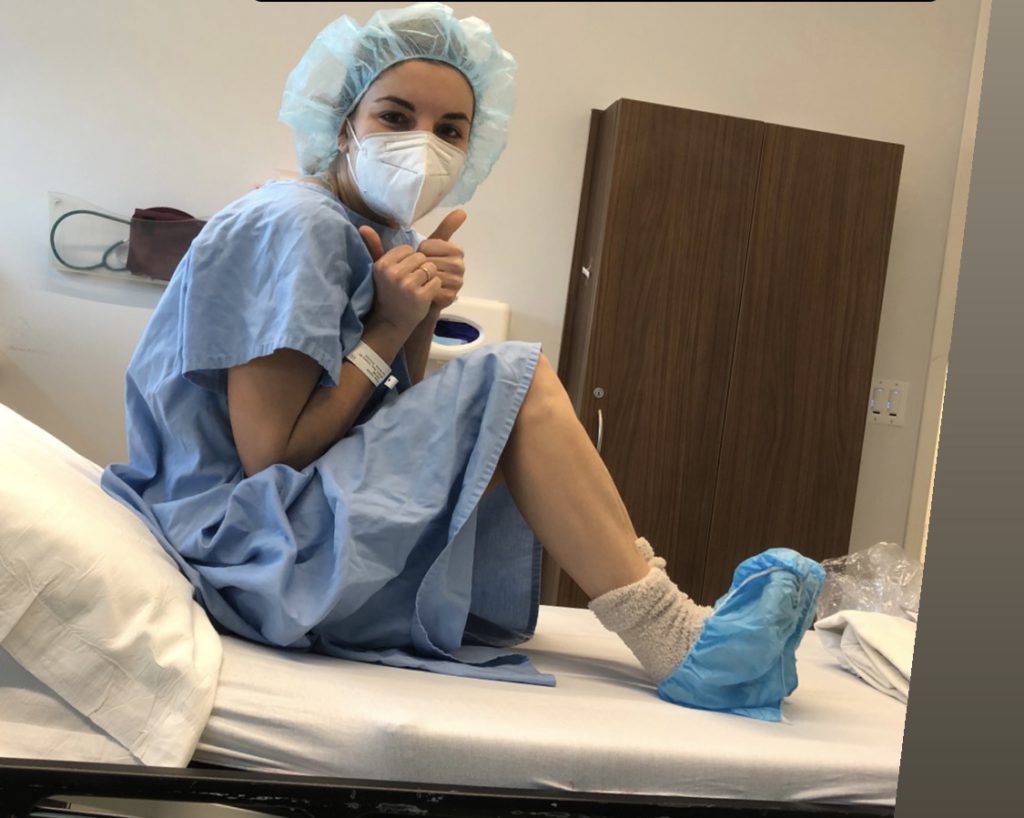
Once I was diagnosed, 2 weeks later, [my doctor] was like, “Let’s get you started ASAP.” We did talk about fertility preservation. My oncologist’s niece was a fertility specialist. I guess they knew that I didn’t need as much treatment as someone who had stage 4 Hodgkin’s lymphoma. We decided to just push on. I really trusted him and his niece. They were like, “We believe you’re going to be fine.” I was like, okay, I trust you.
I needed to get a port in, which I still have, and we started chemotherapy in the middle of January.
Did you opt for fertility preservation?
It was so blurry because everything was moving so fast. When he was reading the list of side effects, which is pages and pages of side effects, fertility came up, which for a young person, is such an important part of your life. Me and my mom were like, “Do you think we should do this?” And he was like, “It’s really up to you. A lot of women do, but a lot of women don’t. I personally think you’re going to be fine.” He was very correct, I was fine.
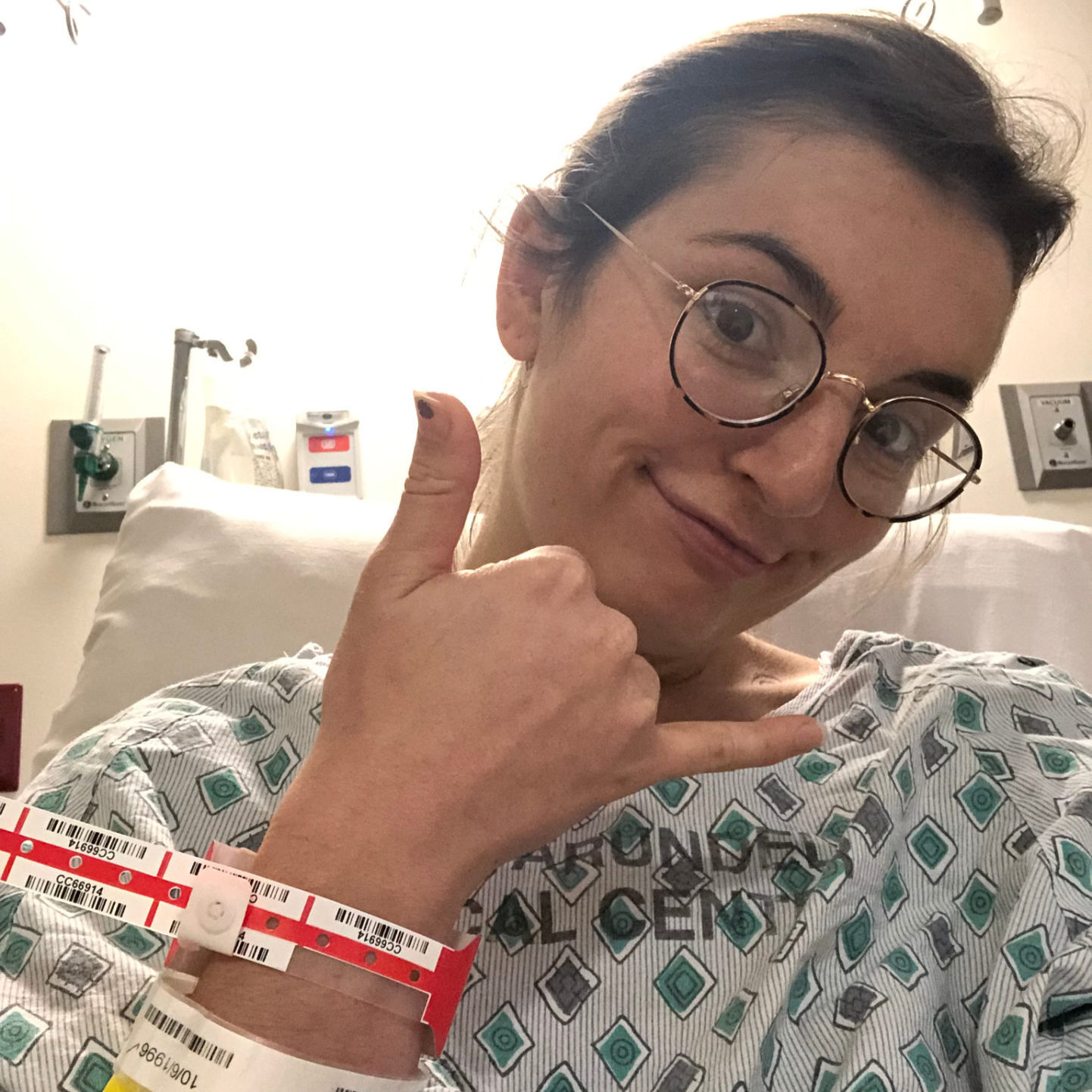
Did you have side effects from chemotherapy?
I did, which is totally standard for Hodgkin’s lymphoma. I did 8 rounds. The standard is usually 12, but I did 8. It was terrible. I read somewhere that ABVD is one of the hardest regimens there is in chemotherapy. It is just so brutal. It’s this wave of toxic poison rushing throughout your body. I feel like a lot of cancer survivors talk about when you’re in that fight or flight. You’re so zoned in on making it through that. I made it through it. I slept.
The first 4 days are the hardest, and you just sleep a ton and take it easy. I did a lot of yoga to manage my side effects, which is good for nausea, the digestive system and also managing anxiety. I also took Compazine, which is an anti-nausea drug. I definitely recommend asking your doctor for anti-nausea medication, being near a bathroom at all points, and trying to eat as much as you can. I also ate marijuana edibles which were approved by my doctor. And trying to go for walks, that’s how I manage the side effects.
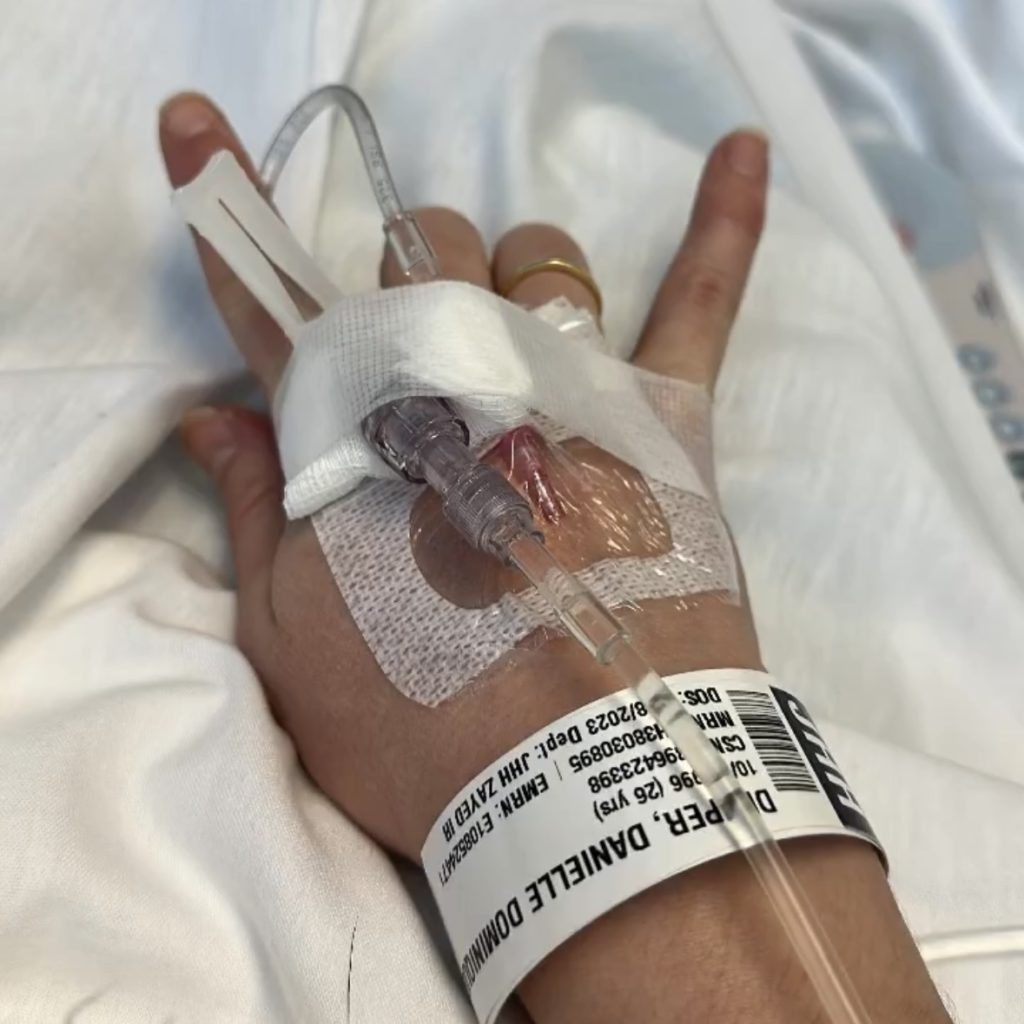
I read somewhere that ABVD is one of the hardest regimens there is in chemotherapy. It is just so brutal. It’s this wave of toxic poison rushing throughout your body.
How did your cancer react to chemotherapy?
I did 4 infusions and then [my doctor] wanted to check if it was working. I got a PET scan that showed that I had a complete response. The tumor in my chest had disappeared completely, so we were so happy.
A lot of doctors recommend that you keep going with more infusions, that way you’re killing off those hidden cells because PET scans don’t necessarily catch everything, unfortunately. His recommendation was to keep going, which was a little disappointing to hear because chemotherapy is so terrible. I hadn’t lost my hair yet. I was one of the few that didn’t, and I was like, I really want to hold on to my hair. But I trusted him, so I was like, alright, I’m going to put my head down and do 4 more treatments.
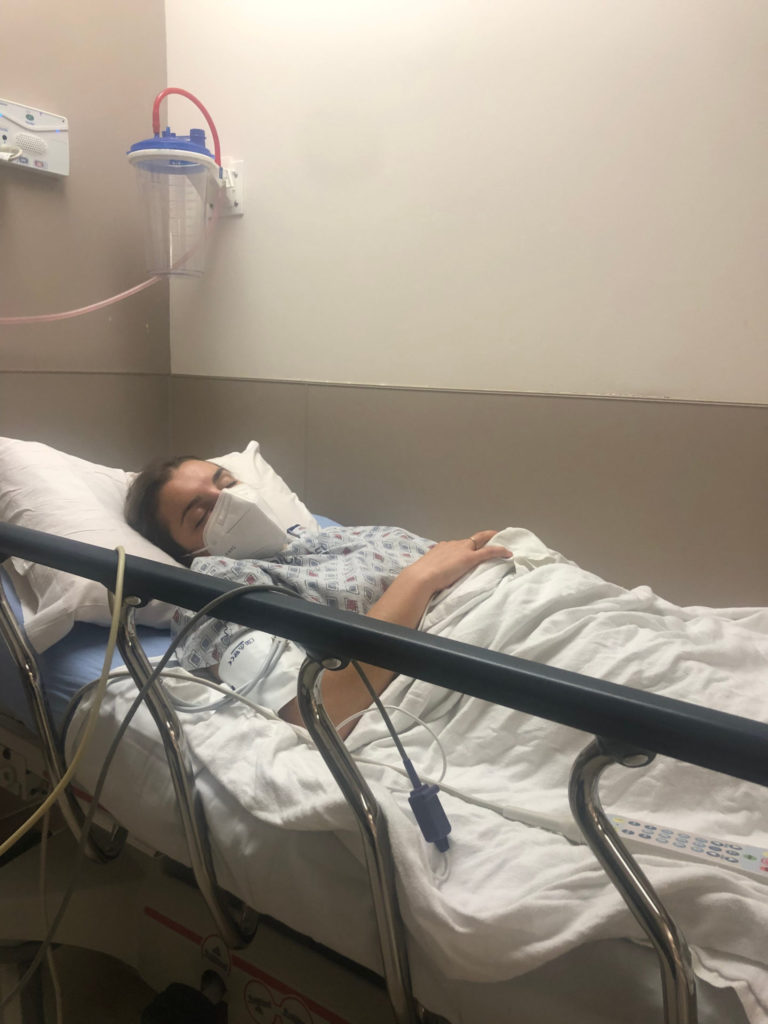
Did you lose your hair to chemo?
I lost it later, but during that point, I had really long hair and it definitely started thinning a lot, but it wasn’t coming out in clumps like a lot of survivors say. I had this feeling I could hold on to as much as I could. It’s super depressing. I loved my long hair and it started coming out. You always worry you’re going to wake up one day and look in the mirror and it’s just going to be gone. Preparing yourself for that, it’s traumatizing.
»MORE: Hair Loss and Regrowth After Chemotherapy
I forget what chemotherapy caused it, but it’s basically the chemotherapy they used to kill off my immune system before the transplant. It’s not even to kill the cancer. It’s to kill my immune system. They told me right away that it would pretty much remove all my body hair.
I loved my long hair and it started coming out. You always worry you’re going to wake up one day and look in the mirror and it’s just going to be gone.
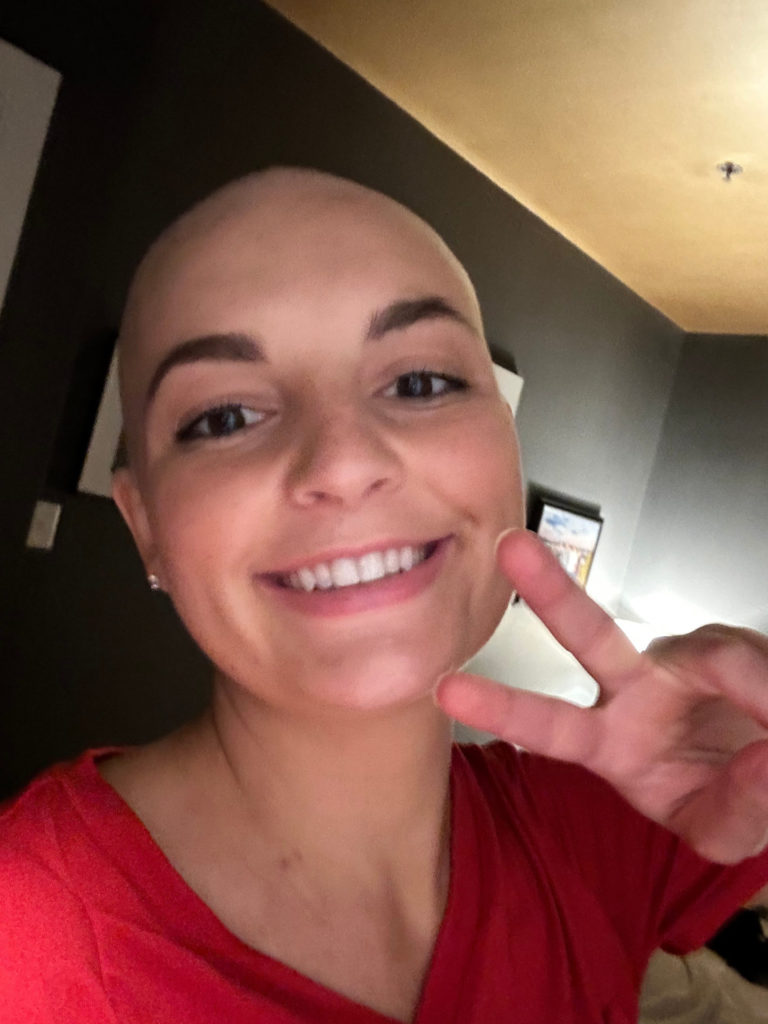
Did you have a reaction to Bleomycin?
No, I know that some people take off the Bleomycin because they’re getting really severe side effects. He was like, “We’re not seeing that, so I’m sorry, we’re going to keep going with it.”
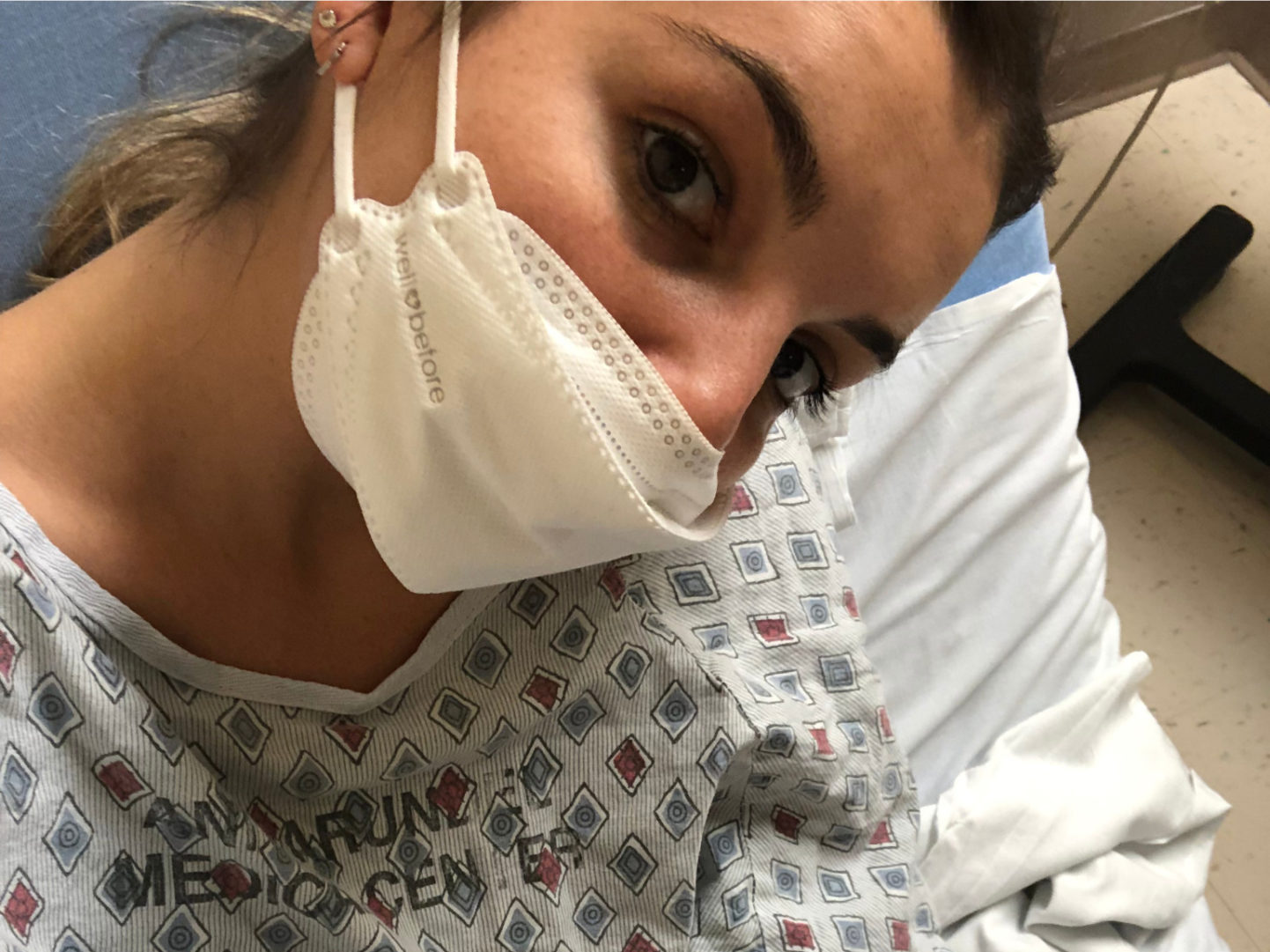
Reoccurrence
What were the results of your post-chemo PET scan?
I’d finished the 8th infusion. I rang the bell. My whole family came into the infusion center and were hysterically crying. It was a really happy moment. But of course, it’s not over till it’s over. I needed to get a clear scan so I could move on with my life, hopefully. They always encourage you to wait a month for your last infusion because they want the chemotherapy to settle into your body.
I got a follow-up PET scan and he informed me that it had gotten bigger. That’s when it’s no questions asked. This is cancer, this is not a cold.
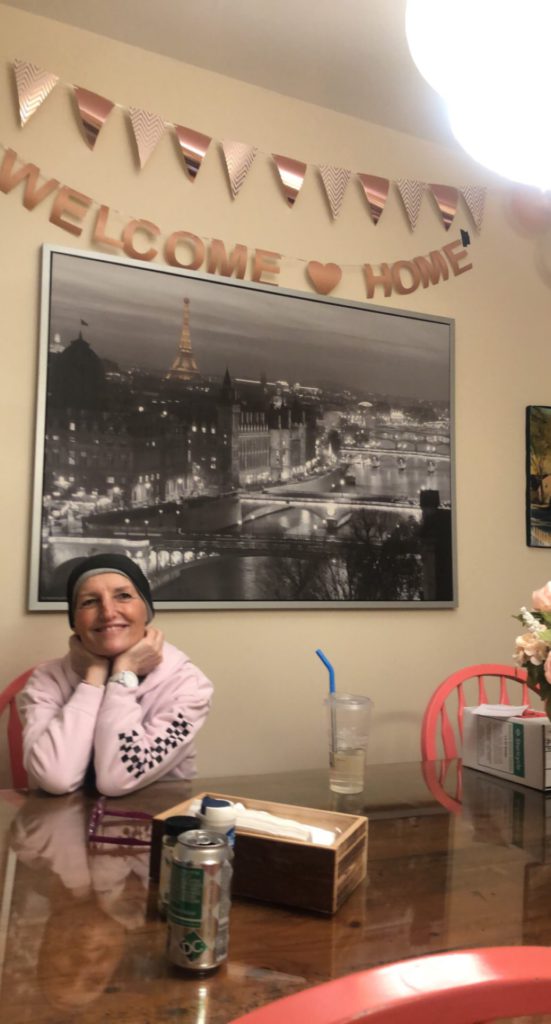
It was about a month after my last infusion, we got a PET scan. I went in with really high hopes because I had already been in remission at that point. He told me that something was lighting up like a tiny, tiny little spot. The problem with Hodgkin’s lymphoma is that your lymph system is extremely sensitive. Like when you get a cut, a lymph node can swell up. When you have a cold, your lymph system can react. I had my COVID vaccine and that showed up on my PET scan once. The scans also can show how – they call it – hot like radioactive the lymph node is. It was very hot, very red, so that was not good.
We entered a wait-and-see period over that summer. I got a follow-up PET scan and he informed me that it had gotten bigger. That’s when it’s no questions asked. This is cancer, this is not a cold.
Processing cancer reoccurrence
I found meaning in my first diagnosis because we accidentally got that chest x-ray and it almost felt like a divine intervention. Everyone told my family how lucky we were. I didn’t have any symptoms and we just got that chest x-ray and I was stage 1, so we caught it extremely early. Many people are bounced around doctors for years. I felt like it was meant to be that I got that chest x-ray and found meaning in it and strength and hope and life lessons.
With the second diagnosis, I was like, this is so unfair. I already went through this. I already gained the lessons that I needed to gain. I had already put in all the inner work. I was already committed to living a much healthier lifestyle. It just felt so unfair. I think that’s what I really got from my second diagnosis was, cancer is genuinely so unfair and random. It’s not because you ate fruit without washing it or you smoked a cigarette once in your life. No, it’s just incredibly random. No one deserves this. I think that’s what helped me process it, recognizing this wasn’t fair. I don’t deserve this. I didn’t do anything to deserve this.
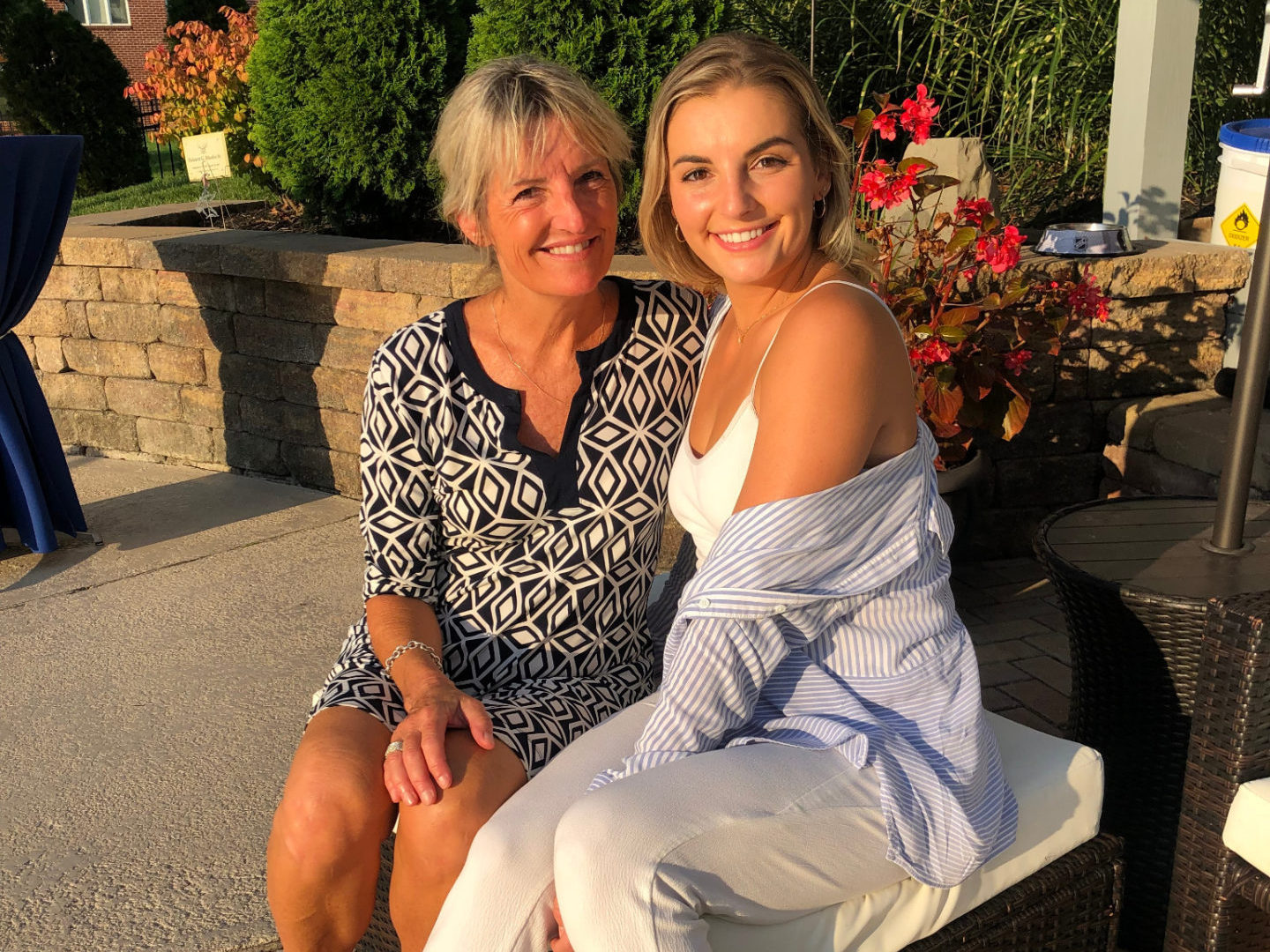
I went to my new oncologist because I was referred to Johns Hopkins, which is one of the best medical schools in the country. Your first question is, did I do anything? Why did this happen? Almost 95% of Hodgkin’s lymphoma patients are cured for the first line of treatment. Why am I in the 5%? What did I do? He was like, “That’s pretty much the first question everybody asks. And it’s not because you didn’t pray hard enough or because you ate too much sugar or you’re not positive, but it’s just an aggressive form of Hodgkin’s lymphoma that’s resistant to chemotherapy. It’s not your fault, and there’s pretty much nothing you could have done to change it.” I told myself, it’s not my fault and I was dealt a crappy hand and was going to do the best I could to fight it.
With the second diagnosis, I was like, this is so unfair. I already went through this. I already gained the lessons that I needed to gain.
Switching medical care teams
My doctor told me that when you have refractory Hodgkin’s lymphoma, the next line of treatment is pretty much always a stem cell transplant, which is the same procedure my mom got when this whole thing started. That was a full-circle moment for my family.
He was like, “I’m recommending you see 2 doctors and decide which one you like better,” which I think is really important because I went to the first one and I was like, alright, I guess I could do this. We felt like we had made a decision. Then we went to Hopkins and we left there being like, whoa. We should go there. I feel like you should definitely have a second opinion. You never know which one will feel right in your heart.
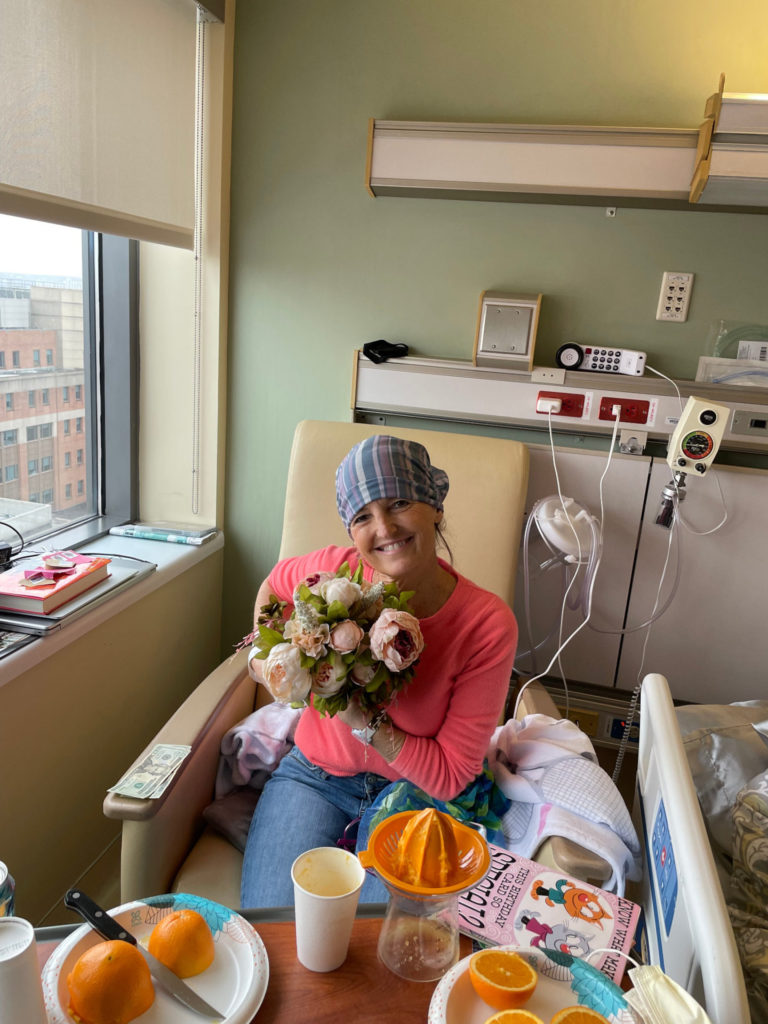
Choosing between a stem cell transplant and a bone marrow transplant
One hospital said they wanted to do an automated stem cell transplant, which is very common for relapsed Hodgkin’s lymphoma patients. Then we went to Hopkins and they said they wanted to do a bone marrow transplant which uses a donor similar to my mom’s transplant. I have a wonderful, young, healthy brother who doesn’t have a tumor in his chest. He was like, “We would love to use him as your donor.”
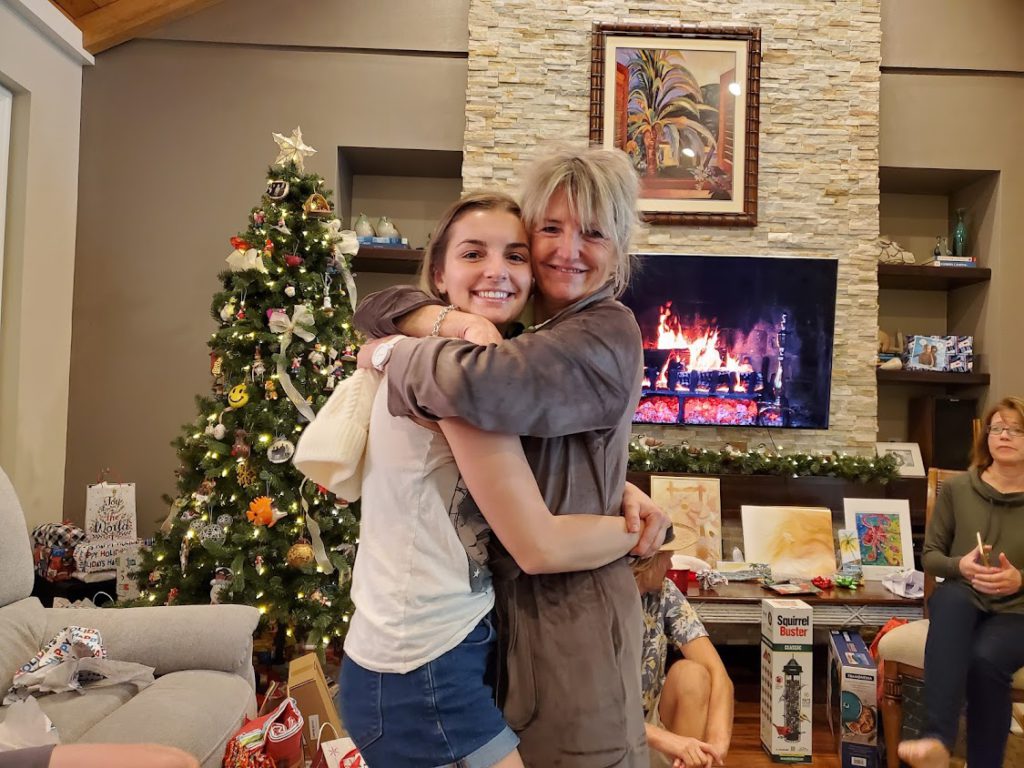
They also did an outpatient program at Hopkins, and that changed my decision so fast. Not staying in the hospital was key to me. That scared me so much to see myself living in a hospital for a few weeks. It’s actually becoming more common around the country, these outpatient programs for stem cell transplant patients. They had an outpatient program, so I was like, I think we should go with Hopkins. I had the insurance approve it all.
Bone Marrow Transplant
Describe what a bone marrow transplant involves
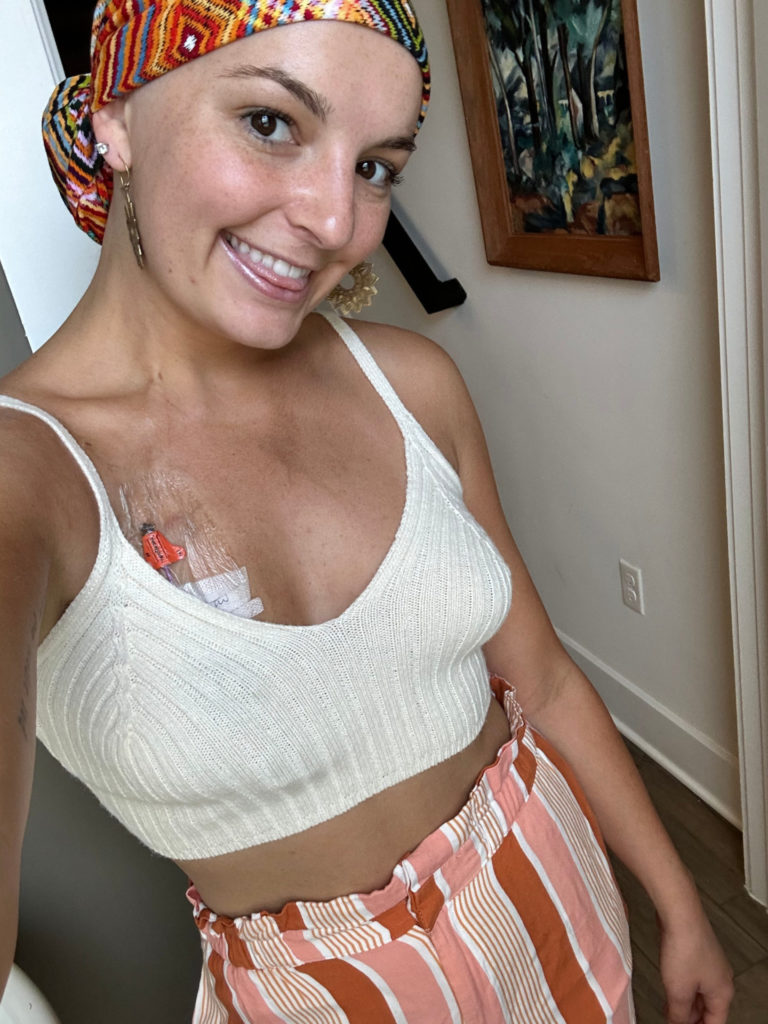
It is a very long recovery where you’re extremely immunocompromised. You can’t leave your house for a few weeks.
A bone marrow transplant is a very intense procedure where they kill off my entire immune system, and then they transfuse my donor – which was my brother’s healthy stem cells – into my body. It’s this big bag. It pretty much looks like a bag of blood, but it’s surgically removed from my brother’s hip bone. He was placed under anesthesia and they extracted his bone marrow, put it in a bag, filtered it, and then brought it to me.
At this point, my immune system is totally killed off through chemotherapy. I have no immune system, no white blood cells, and they infuse his stem cells into my body, and from there, it’s like a garden. He said, “Your immune system will start growing from scratch using your donor’s immune system.”
It is a very long recovery where you’re extremely immunocompromised. You can’t leave your house for a few weeks. You’re extremely tired because you don’t have any white blood cells and barely any red blood cells, which is where your energy comes from. You’re super tired and there’s a load of other side effects, like you’re not hungry at all. You lose your hair immediately. There’s a lot of medication. For young adults, you definitely want to do fertility preservation before your transplant. Luckily, I had done that through Shady Grove before my transplant.
Preserving fertility
That process went really well. I had a really good experience. Once you tell Shady Grove that you are an oncology patient, they put you on a fast track which they don’t do for normal people who are seeking fertility preservation. They know that you’re in a life-and-death situation. They want to get the process going as soon as possible so you can begin treatment.
Also, there are so many programs out there that will pay for the medicine so you save thousands and thousands of dollars, which would otherwise be a really expensive process. I’m not saying it’s free by any means. It definitely is still pretty expensive, especially for a young adult like me. It’s why I started a Go-Fund-Me to help pay for fertility preservation.
Luckily, it went really, really well. We extracted a lot of eggs. My oncologist was right about the chemotherapy not affecting my fertility. That made me happy that he was right because I still had a lot of eggs and the process went really well. I also feel like they showed me a lot of empathy. They knew that I was in a terrible position and time in my life. I also felt like the doctor showed me a ton of empathy whenever he saw me.
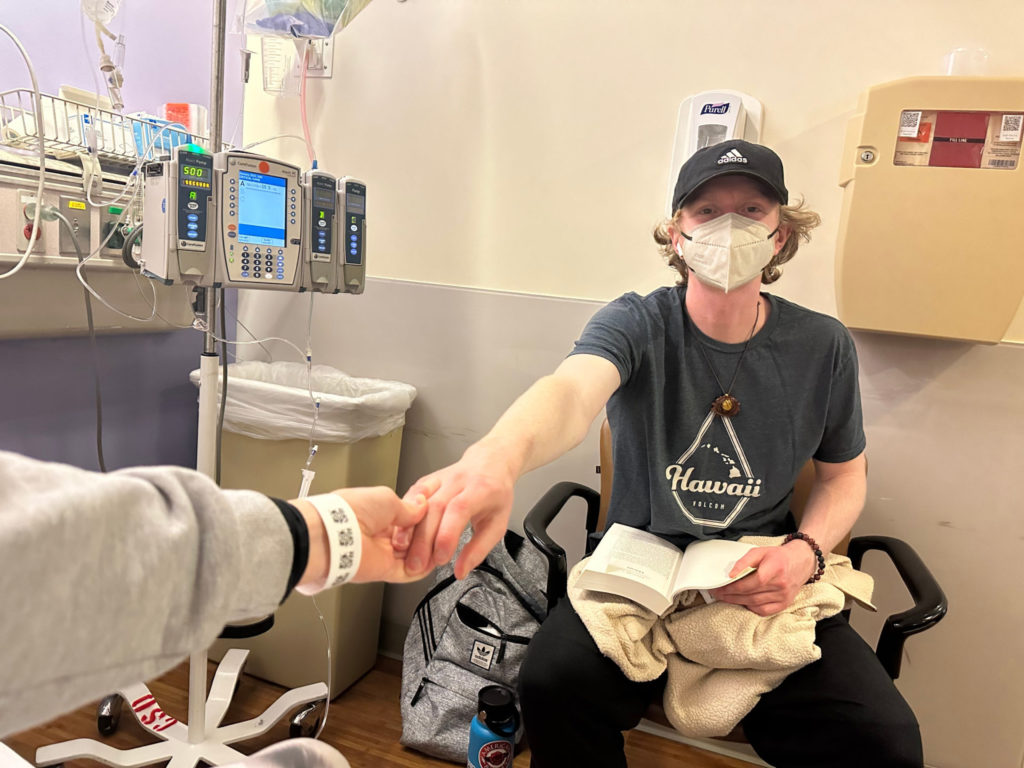
»MORE: Fertility After Cancer Diagnosis
Did you go through immunotherapy?
I did have a few rounds of immunotherapy, which is pretty revolutionary in the cancer world. I can’t even imagine what the next 10 years are going to look like for Hodgkin’s lymphoma patients because immunotherapy has proven to be so successful with Hodgkin’s lymphoma.
I had nivolumab and brentuximab and it got me back into complete remission before my transplant, which increased the success of the transplant tremendously. I was so happy to hear that the cancer was responsive. The side effects were night and day compared to the chemotherapy and you don’t lose your hair. I can’t wait to see what is achieved with immunotherapy in the next few years.
I can’t even imagine what the next 10 years are going to look like for Hodgkin’s lymphoma patients because immunotherapy has proven to be so successful with Hodgkin’s lymphoma.
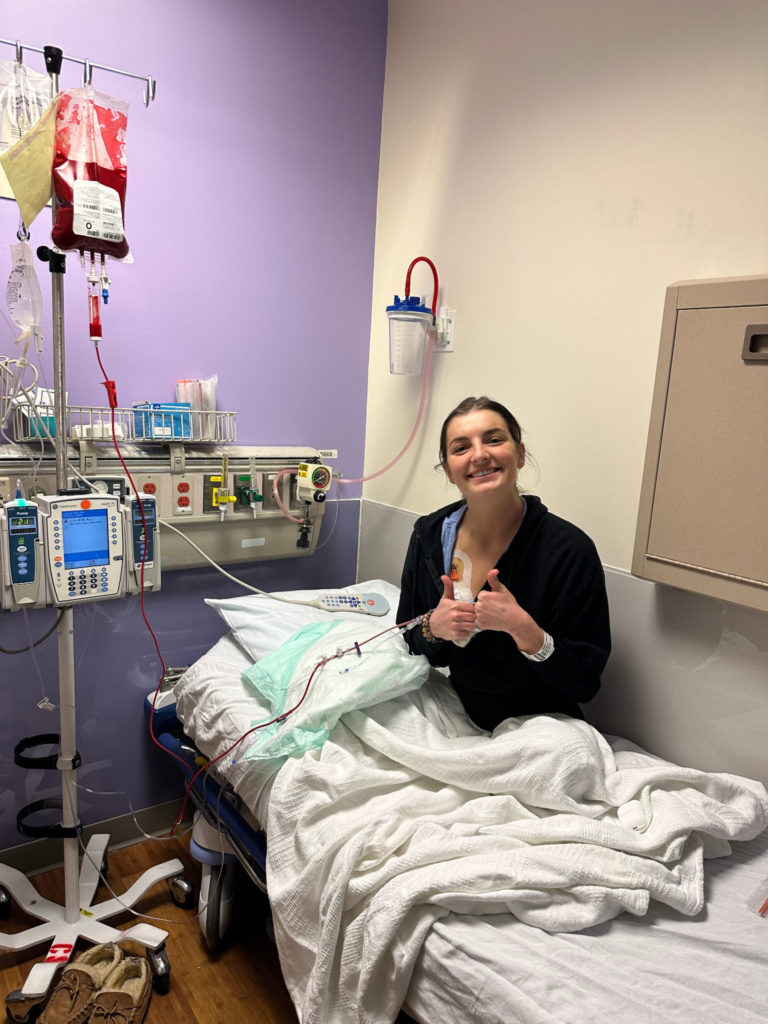
What was your experience getting a bone marrow transplant like?
The bone marrow transplant process, it’s extensive. So much approval has to go into it because it’s an insane scientific achievement. I don’t even know the science behind it all, but so much approval goes into it. I’m getting my blood drawn all the time, my brother has to submit his blood all the time, making sure we’re both ready to do this thing. Getting my heart checked, lungs checked, making sure my liver is healthy, making sure everything is good. I had to get a sinus x-ray. A lot goes into the preliminary testing.
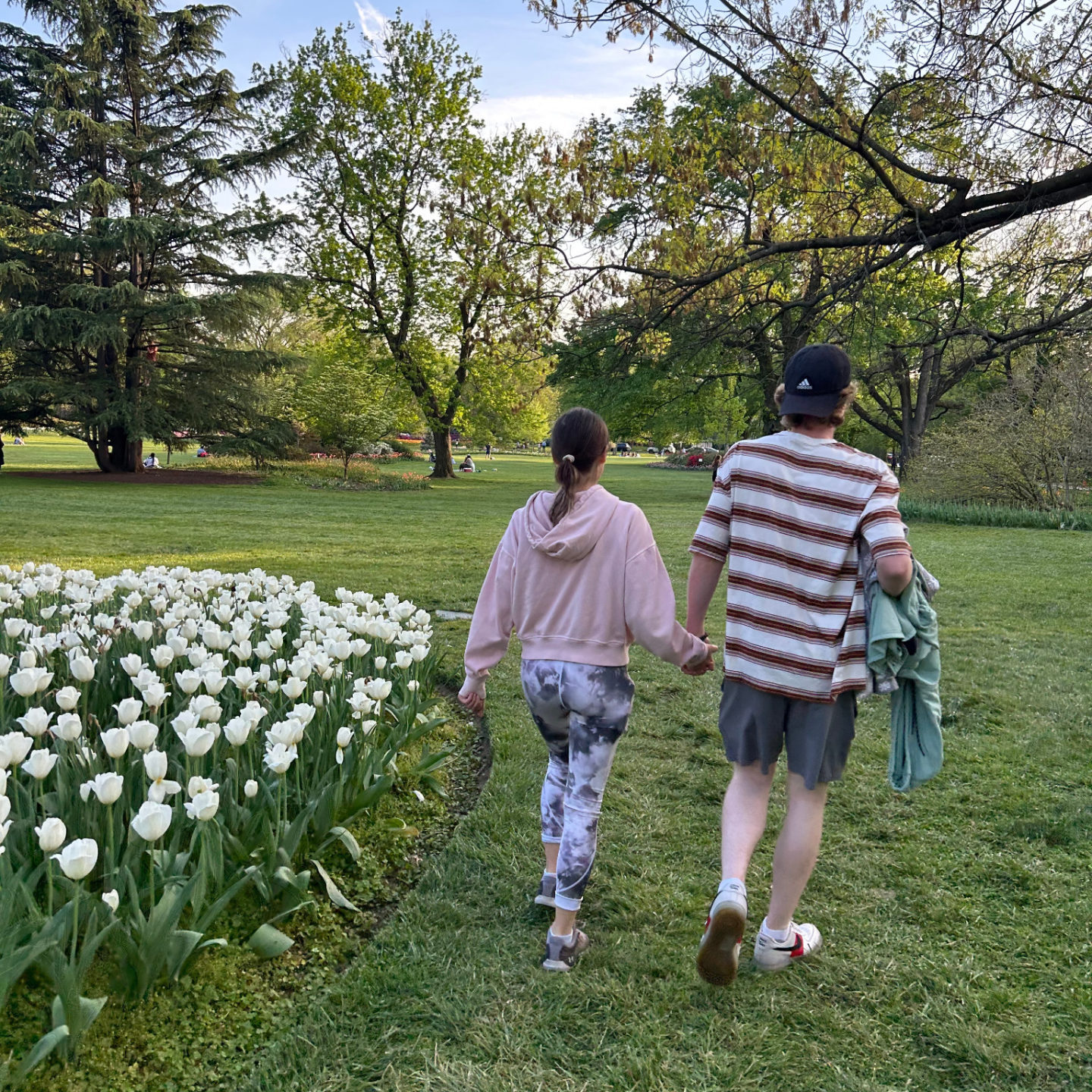
Then finally it’s the extraction day, which they call your birthday. My birthday is April 4th, 2023. Right now, I’m like 5 months old. It’s a very exciting day. It’s actually kind of anticlimactic. I didn’t really feel any different when I got his bag of cells injected into my body. It’s like a normal blood transfusion. I was an outpatient, so I had to be monitored at the hospital every day for 60 days. The first month, they start giving you days off. That was nice. It’s not every day for 60 days, but almost every other day.
What was recovering from your bone marrow transplant like?
My recovery was nothing short of a miracle in terms of side effects. I blame some of it on how terrible ABVD was, in that my pain tolerance was so high because of how terrible that chemotherapy was. By the time the bone marrow came around, I was like, this is terrible but not much more terrible than chemotherapy.
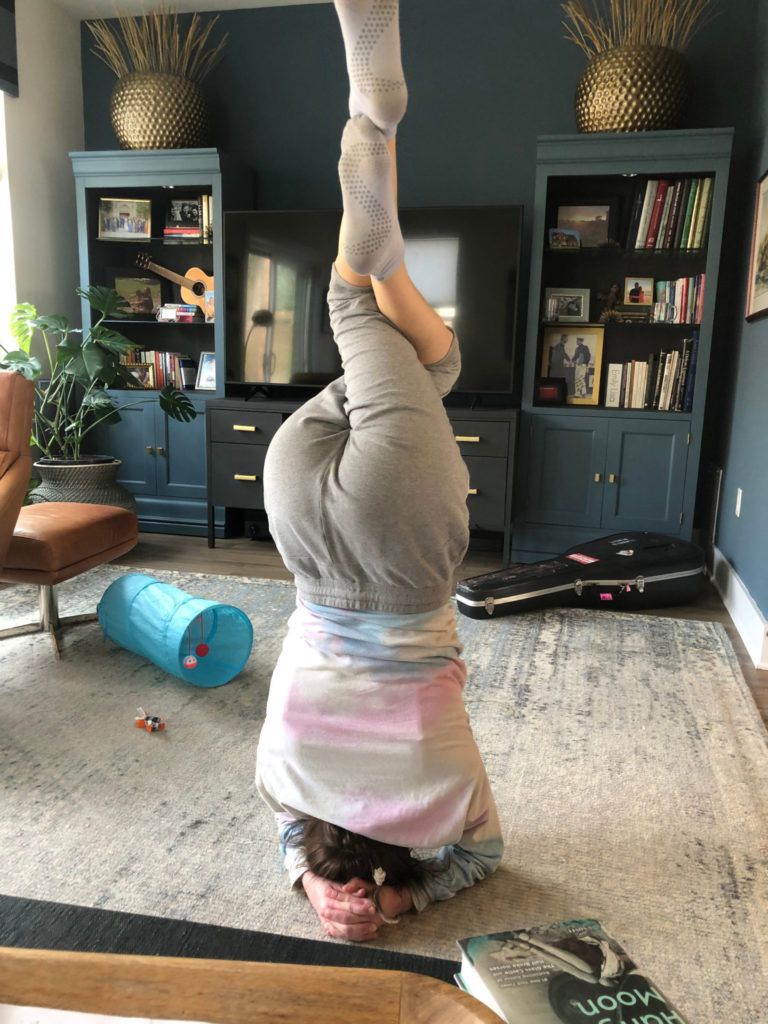
I pretty much did all the same way of treating the transplant side effects with my chemotherapy. I was sleeping a ton, trying to go for walks as much as I could, trying to eat as much as I could, and taking marijuana edibles. Then the mental side effects and being really transparent with my family and friends, and trying to have a strong network.
I documented my recovery via TikTok. I started a TikTok for my cancer recovery and bone marrow transplant, process, healing journey. I did a lot of yoga during that time as well. I didn’t do it for very long, but even if you do it for 10 or 15 minutes, and not even extensively, you’re going to feel a little bit better each time and maintain your strength. That’s how I helped myself during that hard time.
What effect did the bone marrow transplant have on your cancer?
The next day, I happened to be checking my email and I saw an email from my doctor that said the scan was all clear and have a great summer.
A hundred days after a stem cell transplant is when you get your follow-up PET scan to see if the transplant worked. We went back to Hopkins. Anyone who has ever had a scan knows the scanxiety that goes along with getting a scan. It is absolutely the worst feeling in the world. This mental anguish that goes with that waiting is so awful. It feels like you’re waiting to hear if you won the lottery of life or not. I barely slept at all.
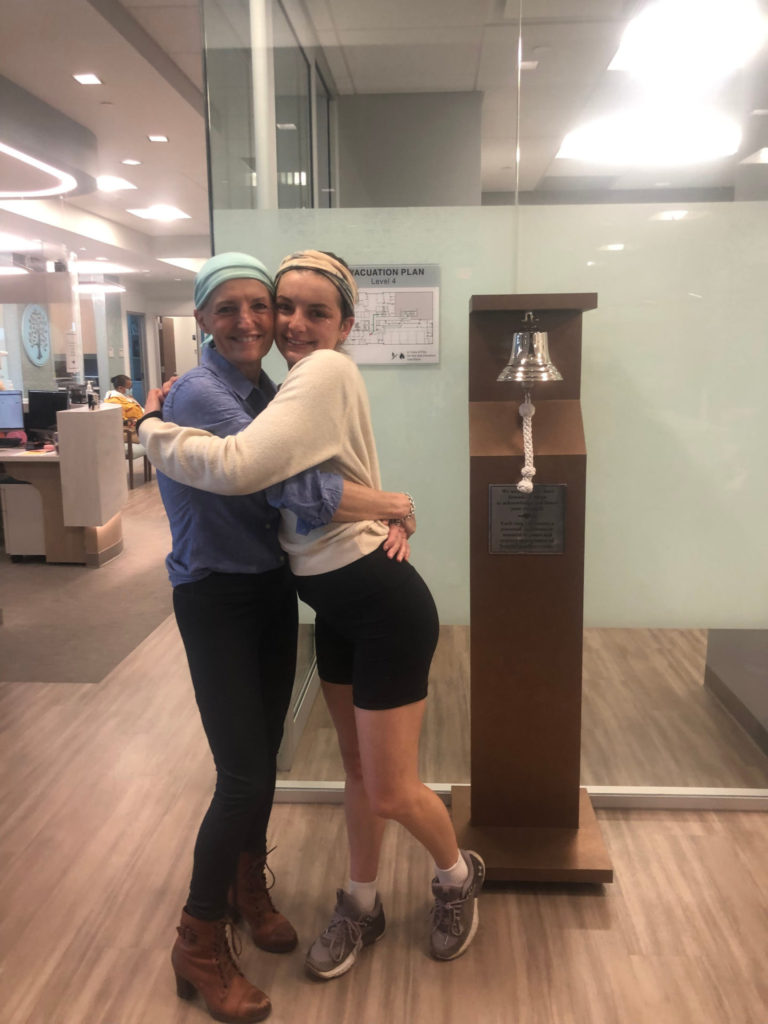
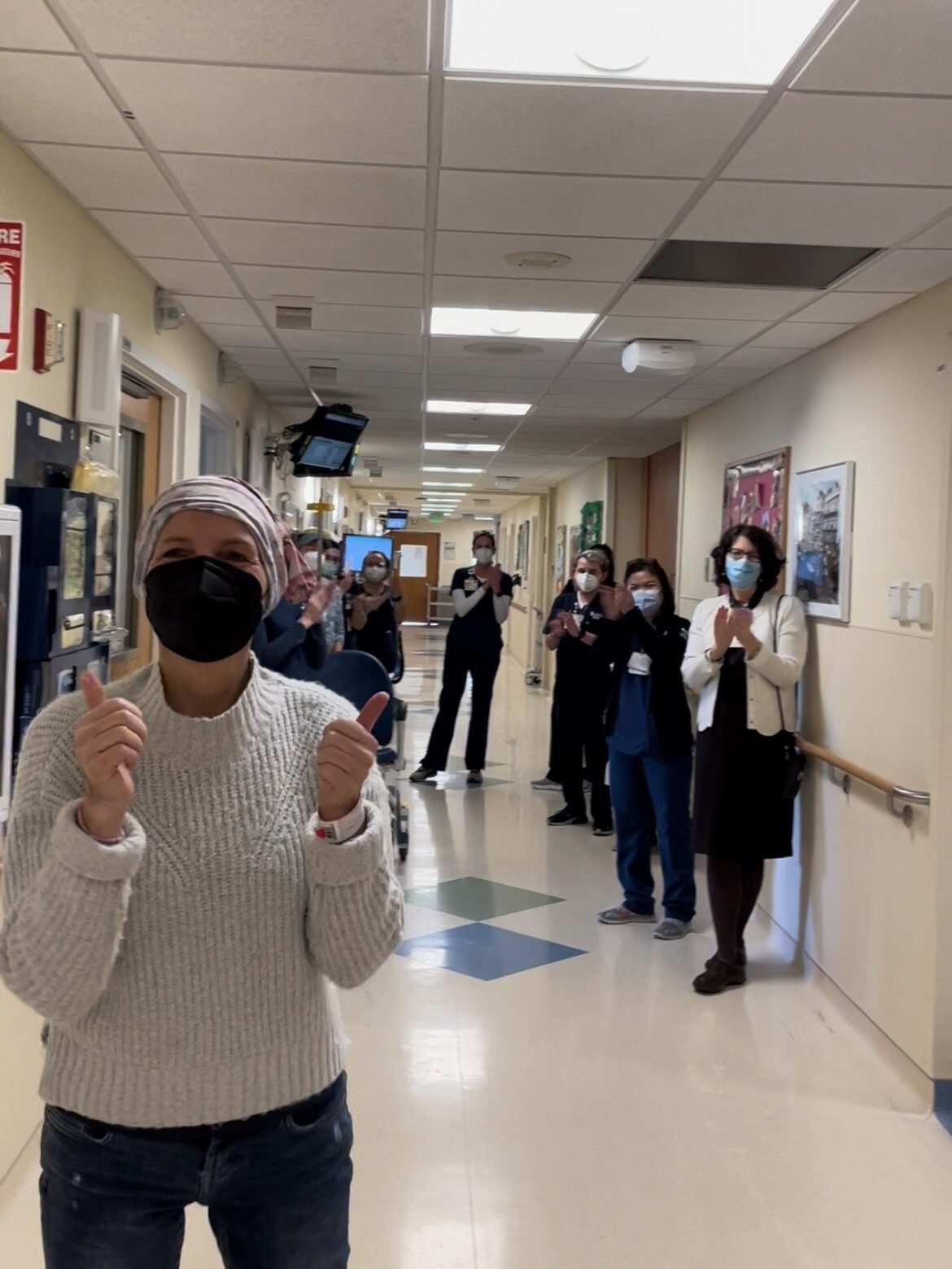
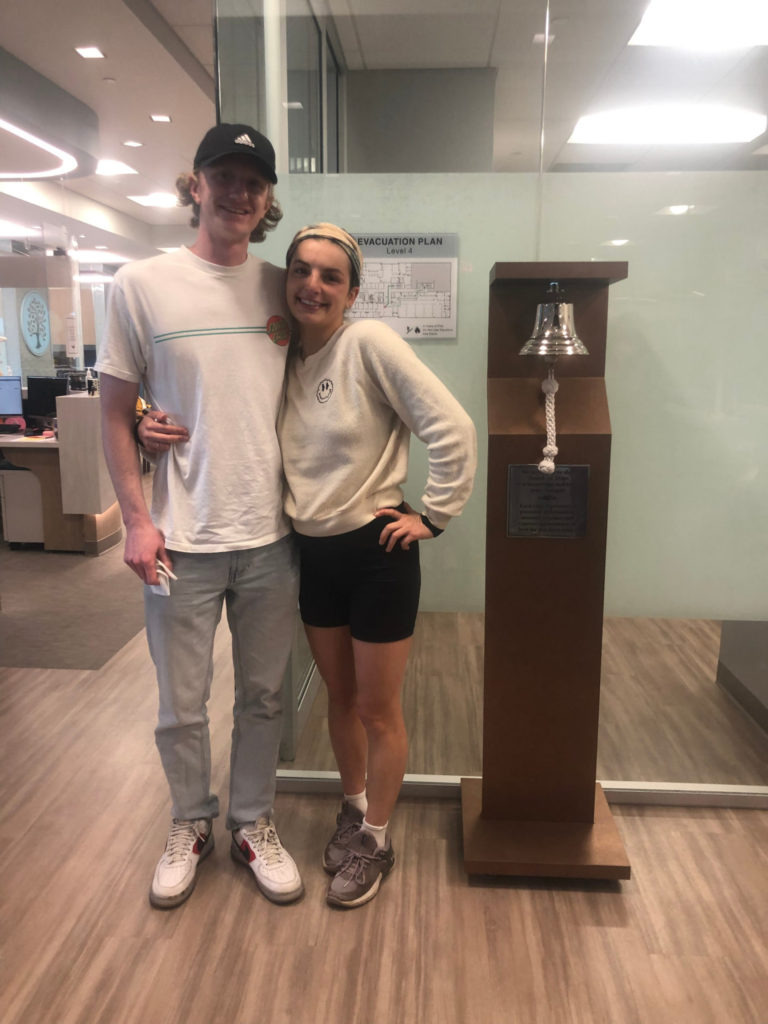
The next day, I happened to be checking my email and I saw an email from my doctor that said the scan was all clear and have a great summer. Very anticlimactic, but I was so ecstatic. My mom, who was just as anxious as me, was driving to my apartment to be there when my doctor called me with the results. I decided to surprise her and record her reaction. We were super overjoyed knowing that it had worked, and now we can actually start the post-cancer follow-up journey. Because at that point, I had never gotten that far.
Reflections
How does it feel to be in remission?
You just start going back to your normal life but with this whole new outlook. You’re so grateful to be here and you appreciate the little things.
It’s so early. I just got into remission a month ago. My oncologist was like, “We’ll see you in September.” From there, we’re going to work out how often I should get a scan and blood tests. It’s early, so I think it will feel super real this winter because I’ve spent the last 2 birthdays and Christmases of my life with cancer. It’s really the fall and the winter that have been absolutely terrible. I think when that time comes and I don’t have cancer, it will feel actually real.
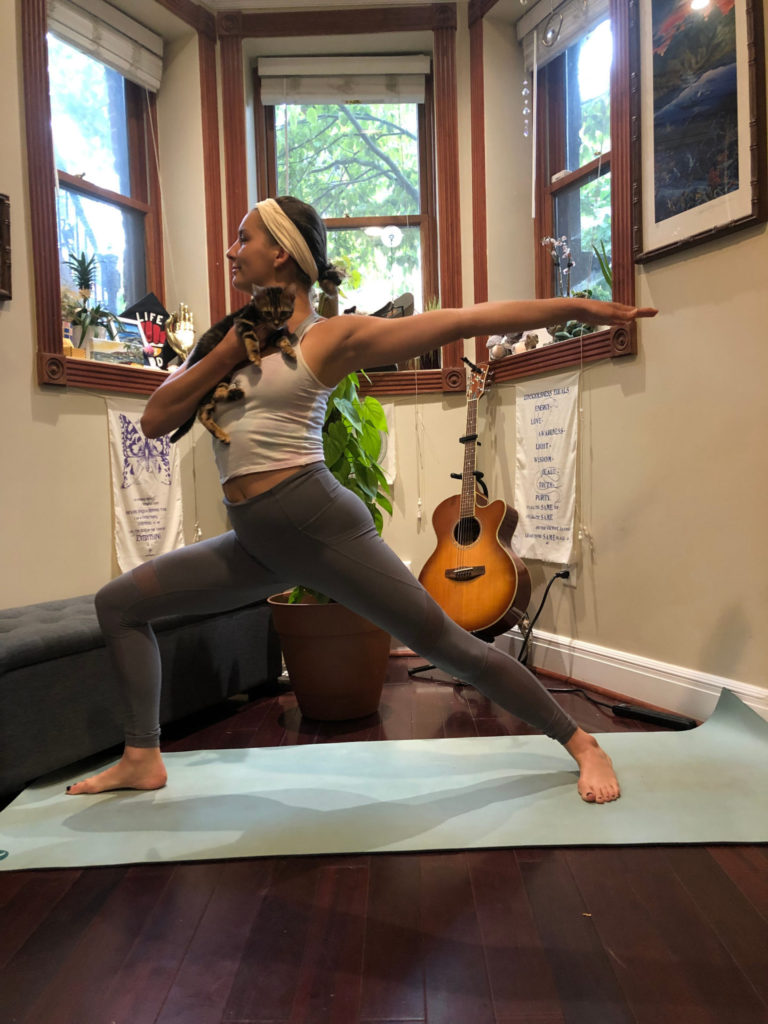
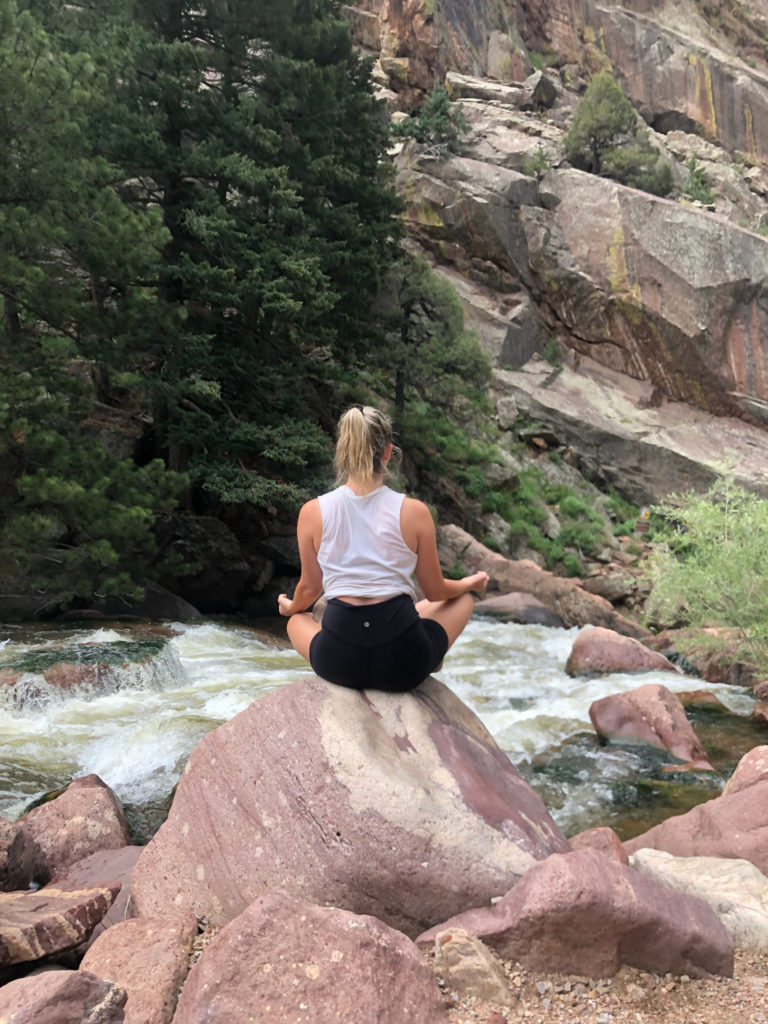
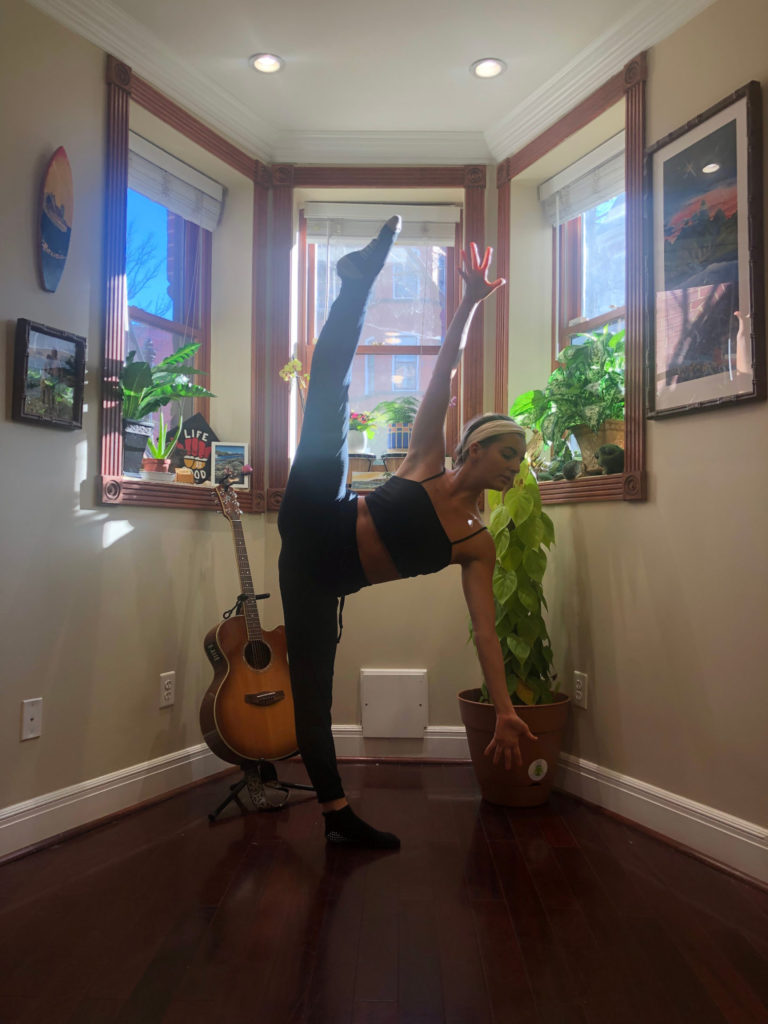
You just start going back to your normal life but with this whole new outlook. You’re so grateful to be here and you appreciate the little things, as cliche as that sounds. Even getting dinner with my friends, I feel so grateful because about 2 months ago, I couldn’t even do that. I couldn’t go to a restaurant. Or traveling, I’ve been on so many trips this summer because I want to make up for lost time.
I definitely have a ton of anxiety which I take medication for. I also go to a therapist and I do a lot of yoga. Definitely trying to have healthy outlets. I read a lot of books from cancer survivors. It helps me justify what I went through. Also social media. There’s a huge community on social media, so I feel like being there for each other is really important.
What would you say to someone on their cancer journey?
Cancer, and life in general, can be really unfair and you can be dealt a really bad hand that you don’t deserve. That said, the human spirit is remarkably resilient. I feel like since the start of humankind, we’ve all had faith. It’s within our DNA to fight and push on and do the best that you can with what you’re given.
This tattoo says “Per Aspera Ad Astra.” It’s Latin for “through adversity to the stars.” I feel like even when you’re struggling, you can reach for the stars and find meaning in your suffering, never give up hope, and always choose love over fear.
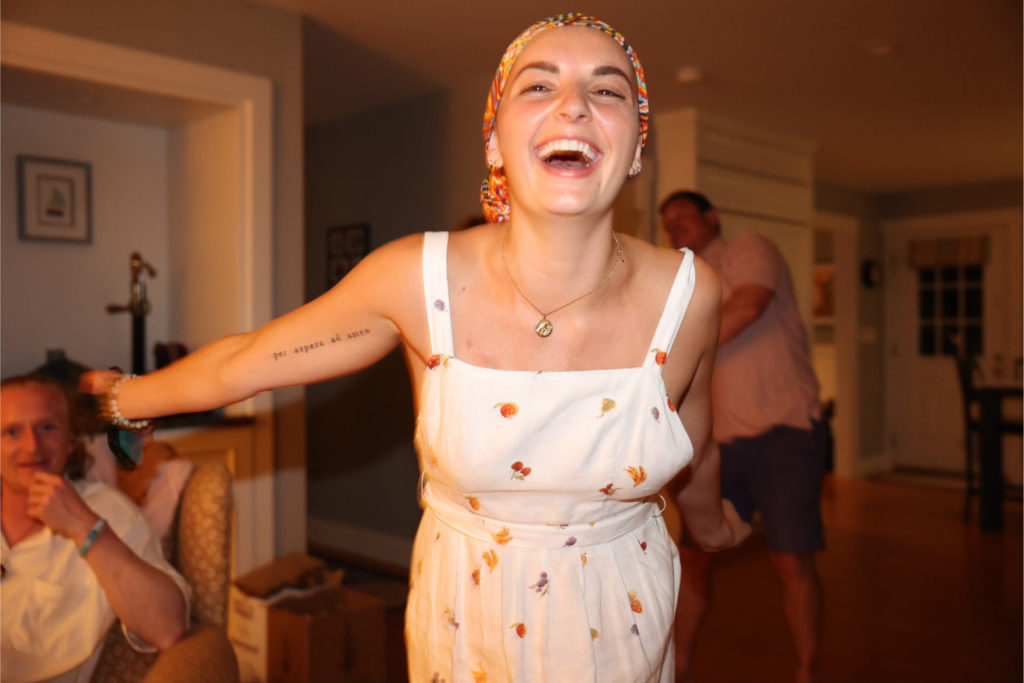
When I was first diagnosed, I was pen to paper. I’m a huge believer in having a journal. I wrote so much that I want to turn into a book specifically for young adult patients. Because I feel like people in their 20s with cancer are a forgotten part of the cancer community because we don’t identify as children anymore, but we don’t identify as older adults. I definitely think it presents unique challenges that I want to write about and help others go through it.
More Hodgkin’s Lymphoma Stories
Jessica H., Hodgkin’s Lymphoma, Stage 2
Symptom: Recurring red lump on the leg (painful, swollen, hot to touch)
Treatment: Chemotherapy
Riley G., Hodgkin’s Lymphoma, Stage 4
Symptoms: • Severe back pain, night sweats, difficulty breathing after alcohol consumption, low energy, intense itching
Treatment: Chemotherapy (ABVD)
Amanda P., Hodgkin’s Lymphoma, Stage 4
Symptoms: Intense itching (no rash), bruising from scratching, fever, swollen lymph node near the hip, severe fatigue, back pain, pallor
Treatments: Chemotherapy (A+AVD), Neulasta
Brescia D., Hodgkin's Lymphoma
Symptom: Swelling in the side of her neck
Treatment: Chemotherapy: 6 rounds of ABVD
